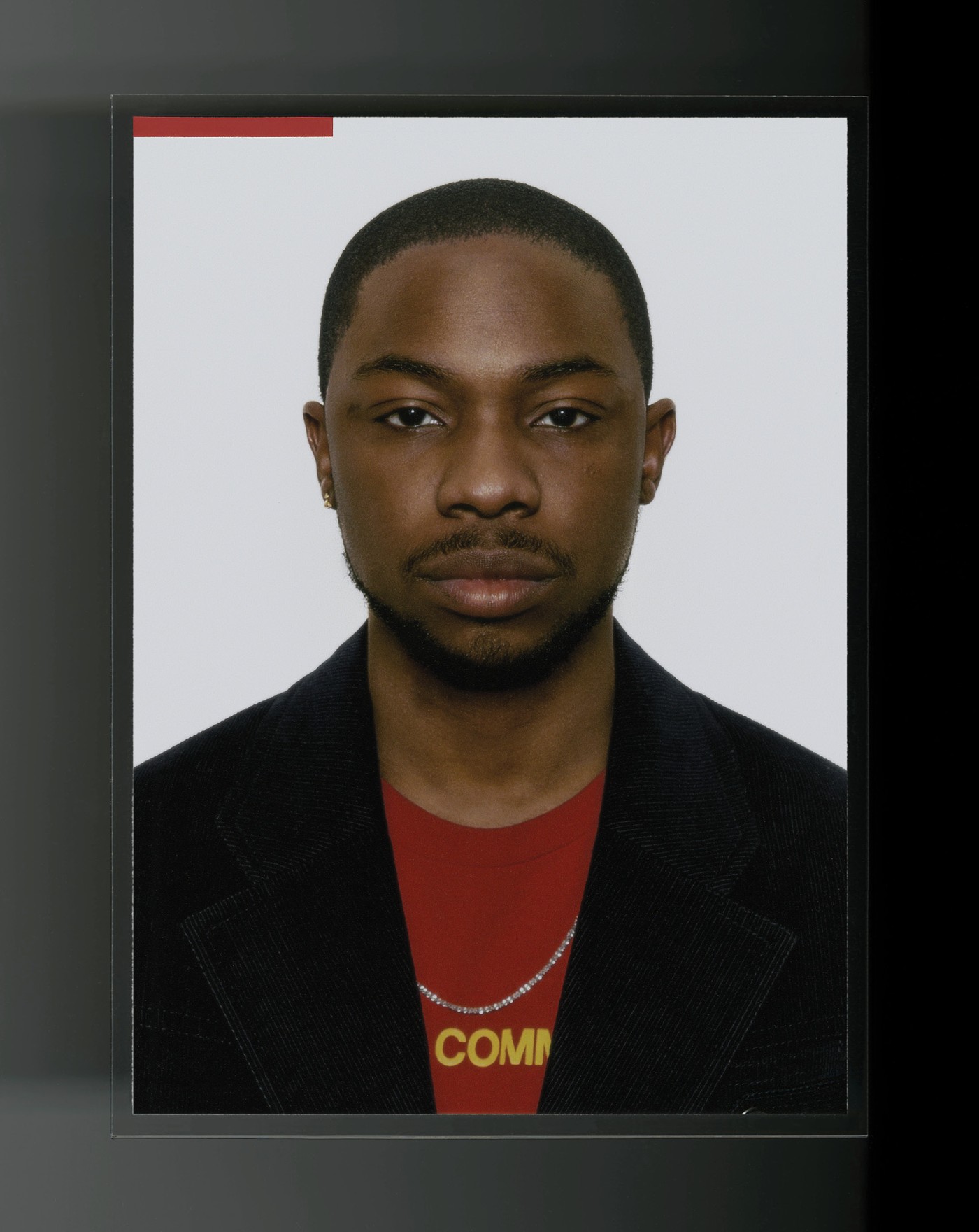10:00AM
Dozie Kanu fuses materials into objects. The function of his work includes the act of making. Performance which eludes formality.
NR
Welcome back to New York. How are you feeling?
DK
I’m feeling okay. Still a little jet-lagged but happy to be back in the States. Curious to see how these sound performances turn out for this series at the —it’s called Artists on Artists. They’ll be having artists respond to the exhibition I currently have up right now. Ari Melenciano, chukwumaa and this collective called .
NR
About your coming of age—what were the books, experiences, or objects that pushed you on your path to today?
DK
Damn... there’s so much.
It’s hard to pinpoint exactly. I think it’s fair to say pictures and the internet played the most dominant role. I started using Myspace around the age of 11 and I was kind of pushed into curating my profile page with images and music that was meant to represent me in some way. It kind of became an unspoken competition amongst friends—like who has the best layout. I guess from there I started to develop an understanding of what an image could say and how images could be perceived—the power they possess. I remember begging for an and finally getting one when I turned 14. And then popped off a few years later, where looking at pictures and studying photography got even more compulsive. I remember having cracked versions of all these different computer programs—I was video calling homies— movies and albums—I'd just be on this device completely zoned out.
Also, just being a superfan of hip hop and then seeing for Louis Vuitton happen. Or even Kanye’s blog, dot com. You remember that? I can’t front, I would credit that blog as being one of the many sparks that pushed me to just start thinking about being creative as a viable profession. He was posting about Margiela01 and and Rei02 while I was in my super impressionable early teen years. I was oblivious to it all but extremely curious and I started taking into account ideas surrounding the psychological weight of objects and the luxury market. Oversized clothes was still the wave at that time in Houston03 so absorbing that output encouraged me to harness this energy of steering away from the norms as opposed to always trying to fit in. It’s like scouring the internet really accelerated the whole process of me switching my mentality at a young age. I slowly grew into being comfortable with having a weird first name.
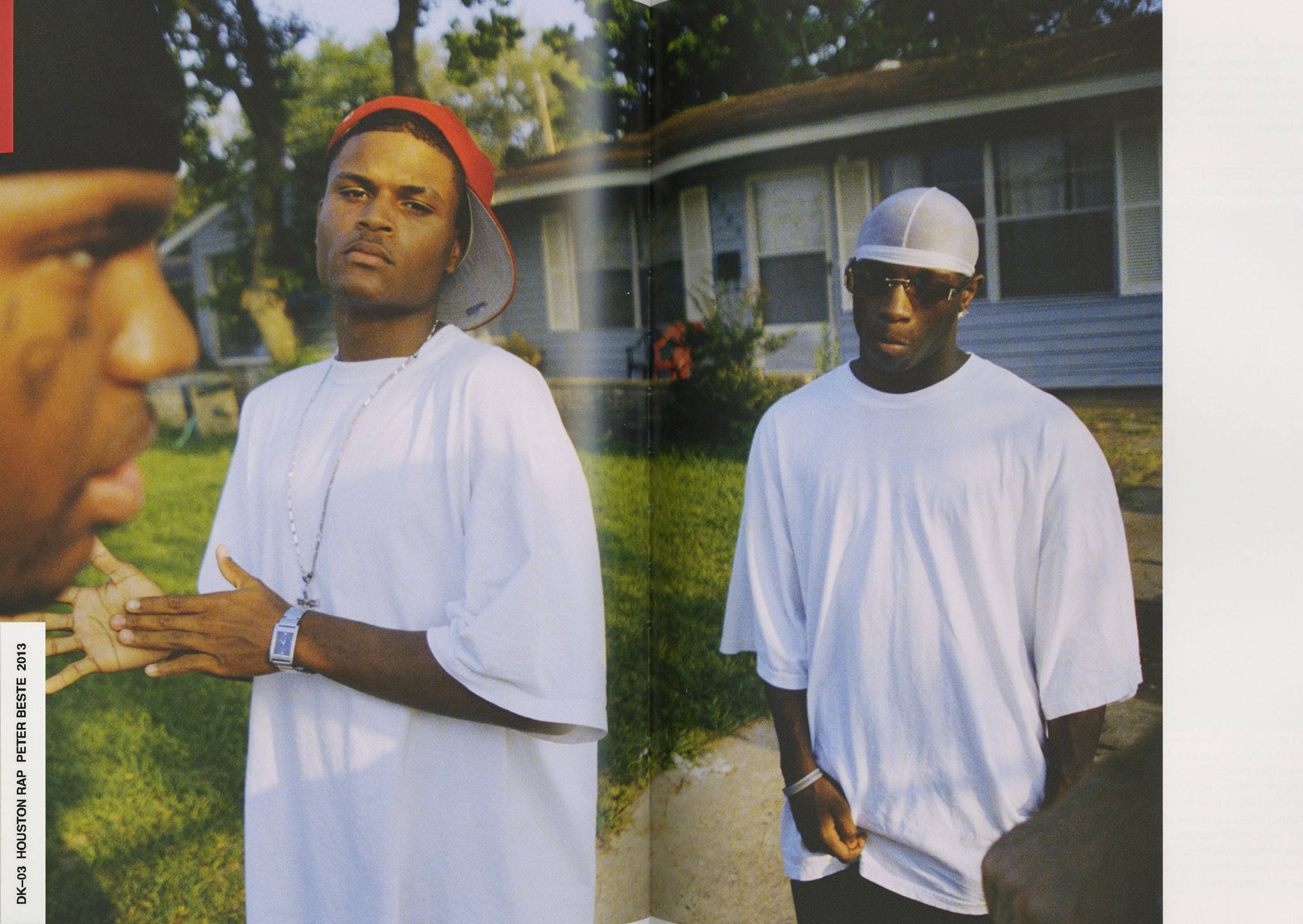
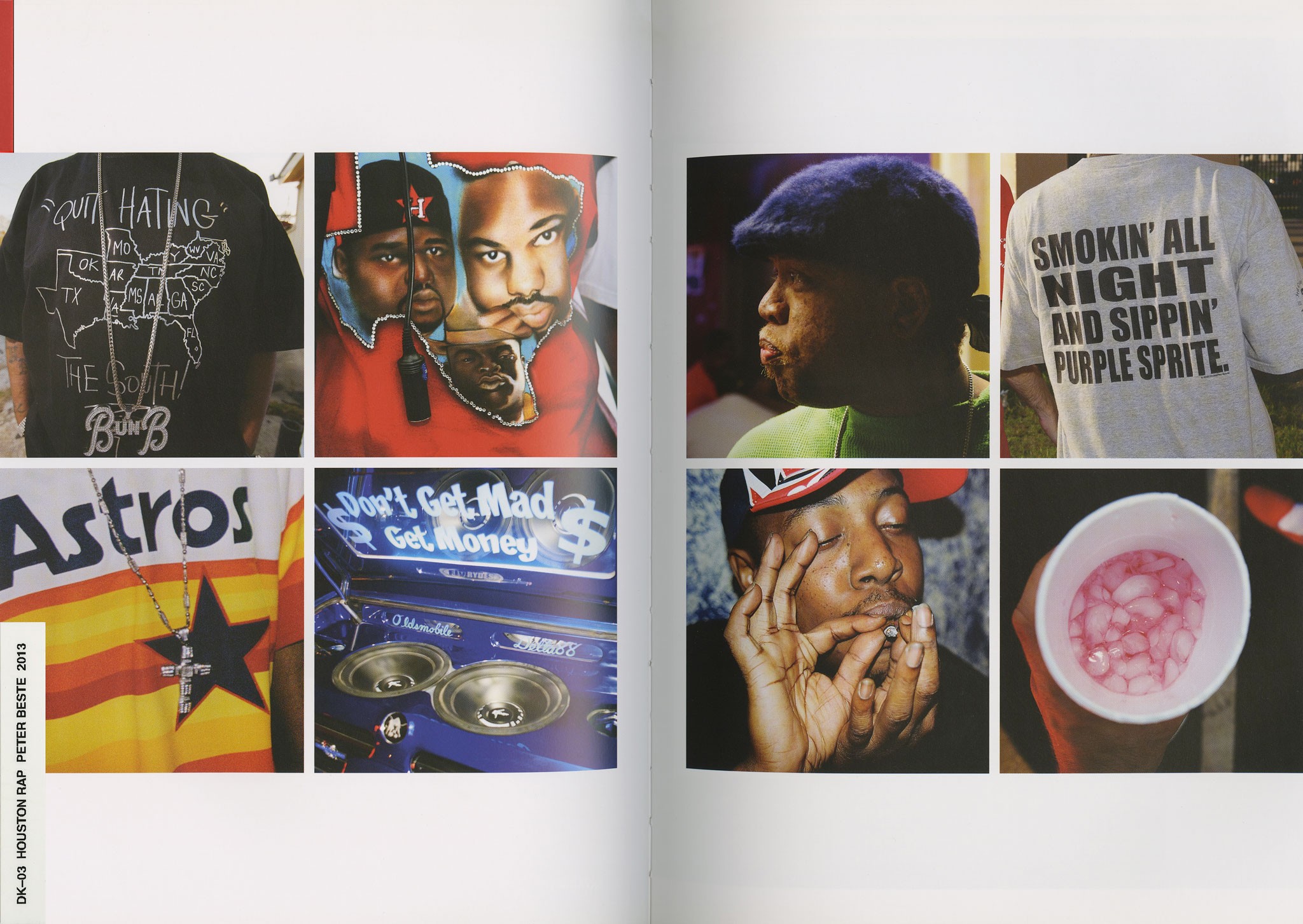
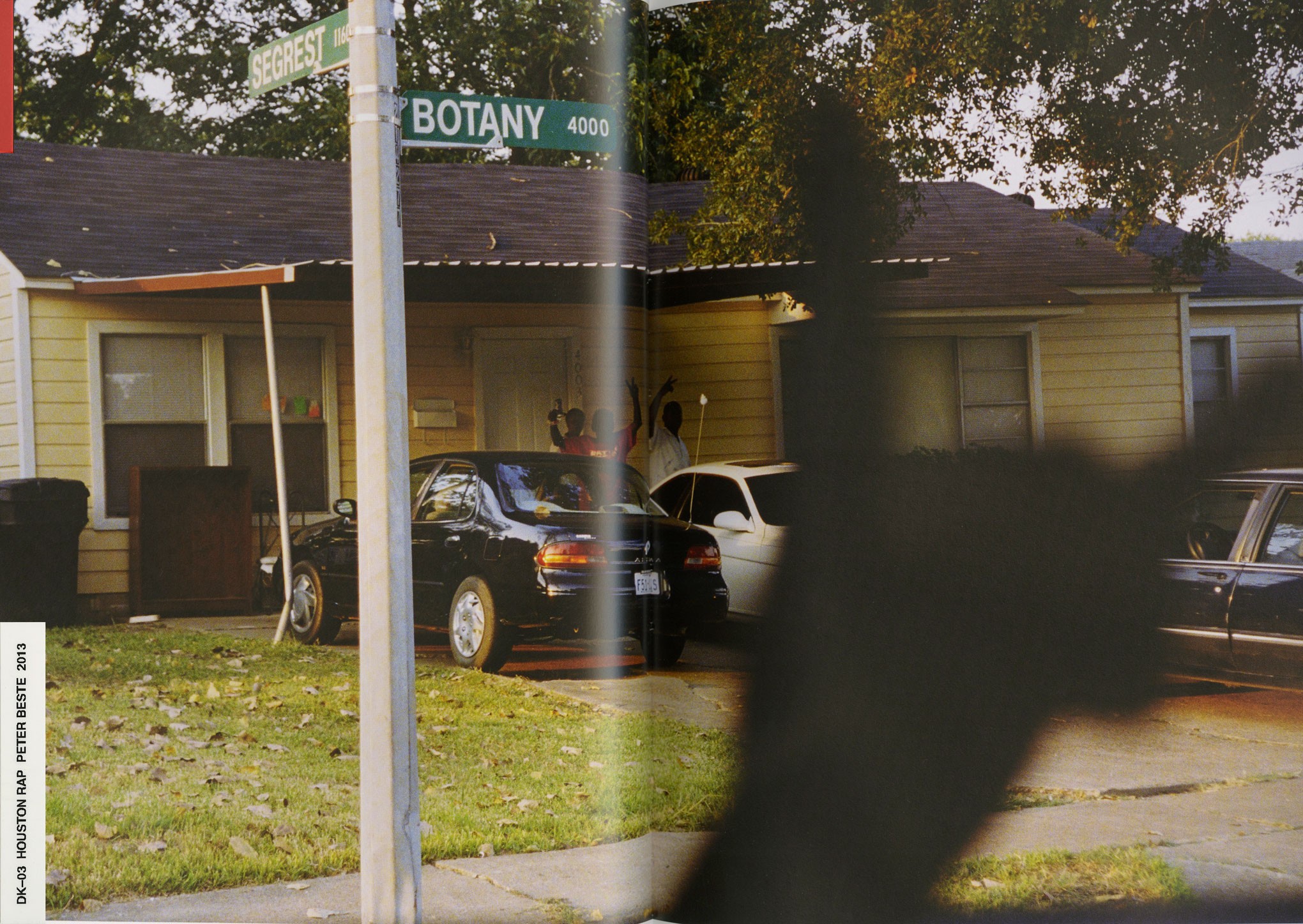
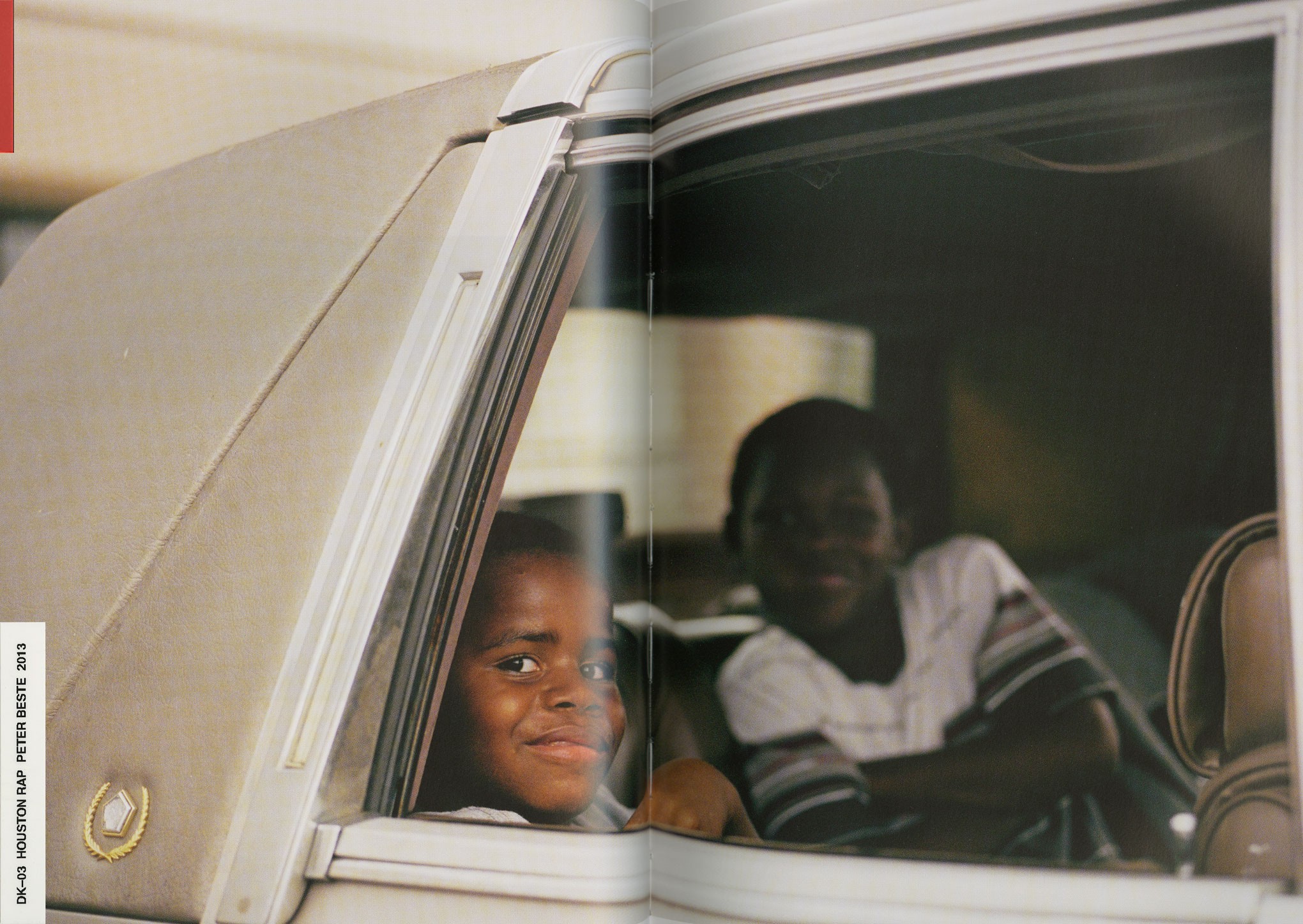
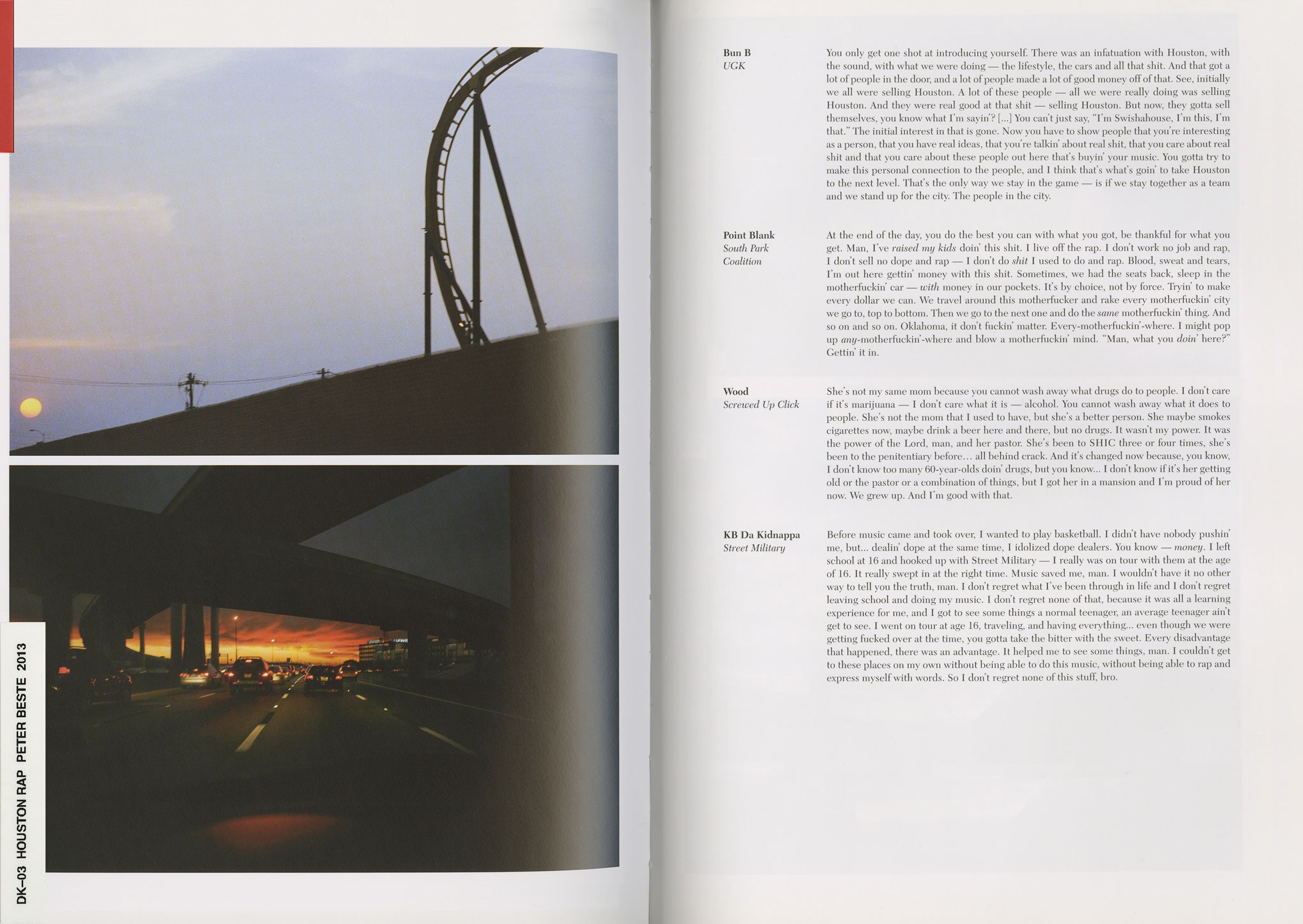
DK
There was also this dramatic but very pivotal incident that happened when I was 15. I had this friend from my hometown who I initially met on Myspace. He was working as a stylist in New York and during the school year he invited me and some friends out to visit during fashion week. I had never traveled outside of Texas at that point. He wrote this very convincing letter to my high school principal explaining that this was a serious study trip and that my absences should be excused and all that. From there I made up my mind that I was going, but I hadn't got permission from my parents yet. My parents were kind of strict so I was dreading the moment, but I went ahead and asked like, “This is a great opportunity for me. I need to experience New York. This will be wildly educational.” They were like, "Absolutely not! You’re not missing school. We don’t even know this friend! Blah blah blah." I was a good student and tried to convince them I could easily catch up on whatever I missed. They were not having it. But my friend had already got me a round trip flight and the school approved the letter so I went ahead and pressed the disobey button.
Couple weeks later I left for the airport in the middle of the night while they were asleep. As the taxi pulls off I see my dad rush outside and he just stands in the driveway shaking his head in disbelief.
I sent him a like, "Sorry. I had to." and just turned my phone off.
When I landed in New York I had several long voicemails from both parents yelling and they let me know they had contacted the NYPD who were now searching for me. My mentality was kind of like “I’ll deal with the consequences of this when I get home.” I was shook for a couple days but eventually I brushed it off and refocused my energy.
I remember not being able to fully wrap my head around the city. I had this at the time and I still have most of the I took. Houston’s very laid back and spread out so it was an intense change of pace for me.
There were several moments I remember just being kind of stuck—like I was on autopilot or something. I was seeing and meeting people I had only seen through a computer screen. Like imagine only experiencing Texas your whole life and then being dropped into an after party with models spilling drinks and skyline views. It was a lot to process at that time. I had a brief talk with one night and it felt straight up mythical—he’s an otherworldly character. And everyone kept asking about my age and saying I looked like a baby—shocked that I was even allowed in.
I made up my mind I was moving to New York after that trip. And then living in New York just took my curiosity about everything to another level.
NR
Now that your visual fluency has evolved, looking back at your early fascination with images with another level of understanding, are you able to remember what you were really gravitating towards?
DK
I’m not sure—I feel like I was just naturally drawn to imagery that pushed the boundaries of my understanding of the world—in ways that felt both authentic and necessary on some level. That’s probably still what gets me to this day—like worldview demolition. I was consuming everything that was on MTV and BET at that time so anything on the internet that went beyond what I was seeing on the TV was somewhat interesting to me in the beginning. Then it gradually progressed into being a more conscious task where I would seek out different stuff that consisted of photojournalism, design objects, music videos, graphics, fashion imagery—it was mercurial curiosity I guess. One week I’m all about , the next week I’m really into street style photography because of blog. But overall I think seeing Black people in any atypical scenario was always the thing that struck me the hardest.
NR
Your work has previously been described as ‘autobiographical’. How precise is this claim?
DK
Yeah—autobiographical to a certain extent but it’s important for me not to get stuck there. I feel a social obligation to engage in questioning different forms of anti-Blackness, which stems from me centering my identity and my personal experiences, but then there’s also a responsibility to at least try to push the medium of sculpture or conceptual art or whatever I jump into.
From my view, there’s this lacking presence—maybe more lacking prosperity—of the Black conscious within material culture—within all capital intensive industries really. It’s sprinkled around here and there but it’s not at all fully formed as compared to the music industry. Arthur Jafa04 speaks about this often and he references this quote, “the culture that will survive is the culture05 that you can carry around in your nervous system”, which kind of explains how traditions of African architecture, sculpture or anything that involves material practically disintegrated in the Middle Passage and remains underdeveloped within the fabric of Black America. Until maybe recently, there was nothing to properly and consistently subsidize that mode of expression for us—no inheritance. Music, dance, athletics, Black Twitter—all essentially dematerialized forms of expression or require minimal investment in material, therefore they’re areas that tend to better support Black expression. I think I’ve been influenced to continue to amplify—or maybe further develop the visibility of Black pictorial literacy within the material realm—things that somehow occupy physical space. There’s a bunch of artists that I feel have laid solid groundwork and I’m also grateful that the Studio Museum and the Souls Grown Deep06 Foundation preserve some of the visual work that was being made before there was a real market for it.
I put emphasis on utility partly because there’s a discounted utility that exists within most African sculpture. The masks, the bowls, the figures—they were objects that originally performed specific practical or spiritual functions within their respective communities but then they become sculptures when they’re removed from those original contexts. At a certain point I became curious about things that could be considered American objects or artefacts—devoid of spiritual function—devoid of complex technology. My work often gets labeled as design but I really have zero interest in making things for real everyday practical use. It’s more about alluding to a use value or oftentimes supporting a specific function for the object without undermining all the other ways the object is vibrating. People are wired to separate those things but I’ve become more invested in trying to bury the distinctions.
Also my parents are both Nigerian immigrants, so my upbringing required me to internally moderate this conversation happening between these two cultures. I found this book in my dad’s storage called Nigeria: Historic Almanac & Book of Facts07 compiled and published by one of his friends back in Houston. I’ve been going to it a lot but I’ve also never had this much interest in the conception of present day Nigeria. I’ve always felt super confused because I never sensed that I truly was part of either culture. So I guess that uneasiness and feeling of displacement is present in the work. For me, a chair is like one of the ultimate American objects—just thinking about the movement and domestic space and how they’re so easily recognizable across cultures. A chair kind of properly aids my goal of amplifying these notions around visual literacy. Also the absence of a body is fitting for the emotions I’m trying to get through. I started with in 2016 and it’s developed into this ongoing series. was recently shown at the biennial in Slovenia.
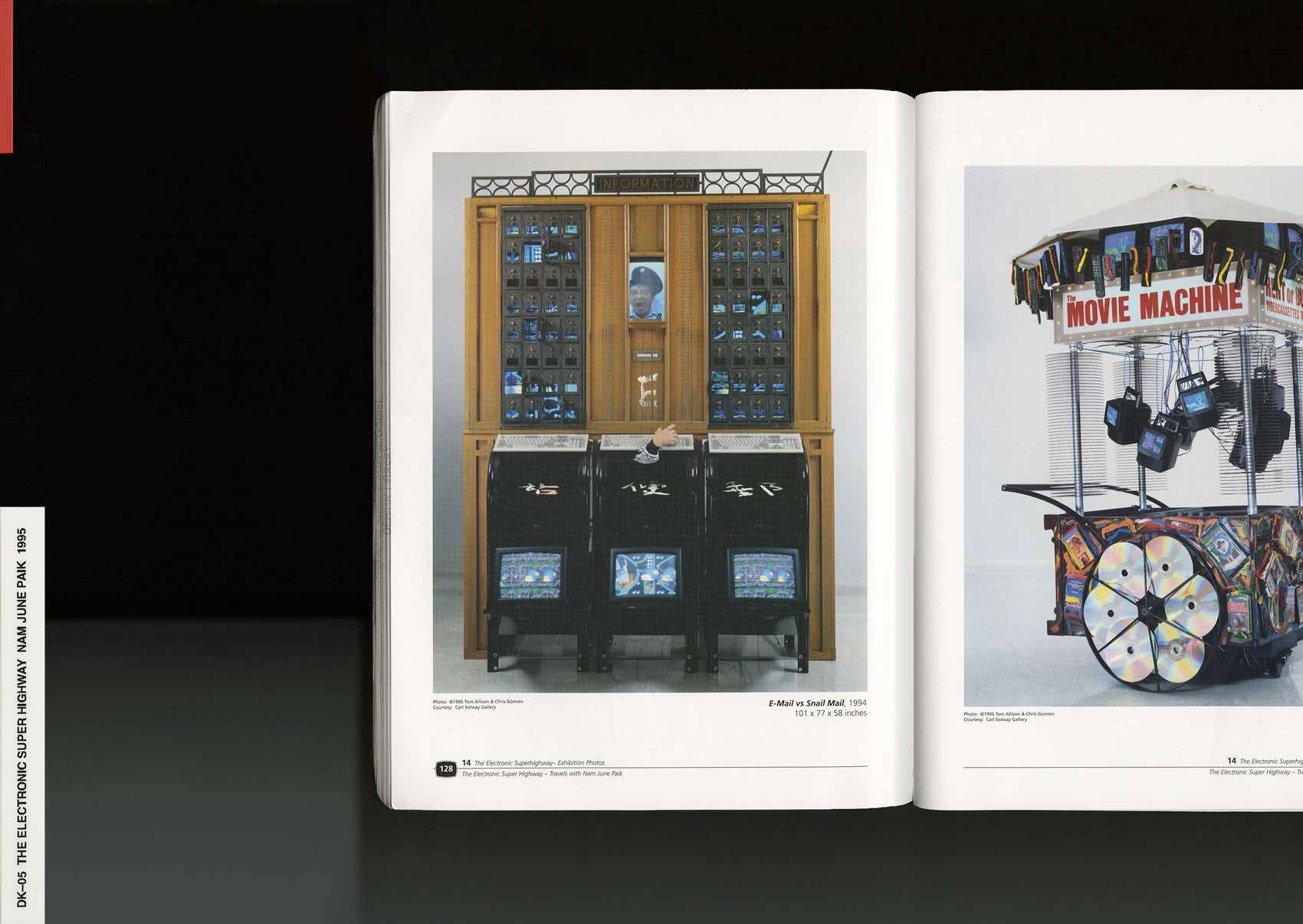
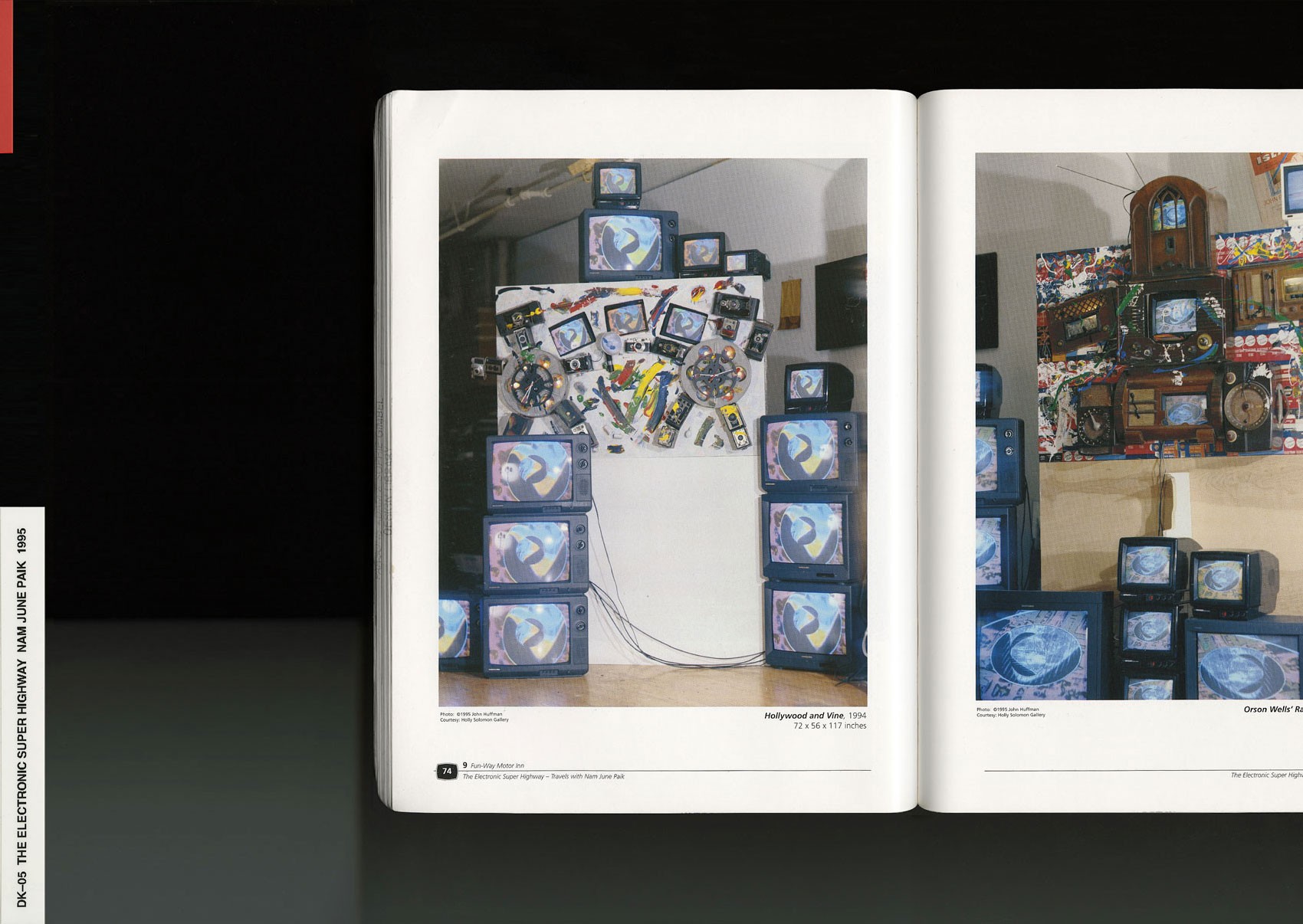
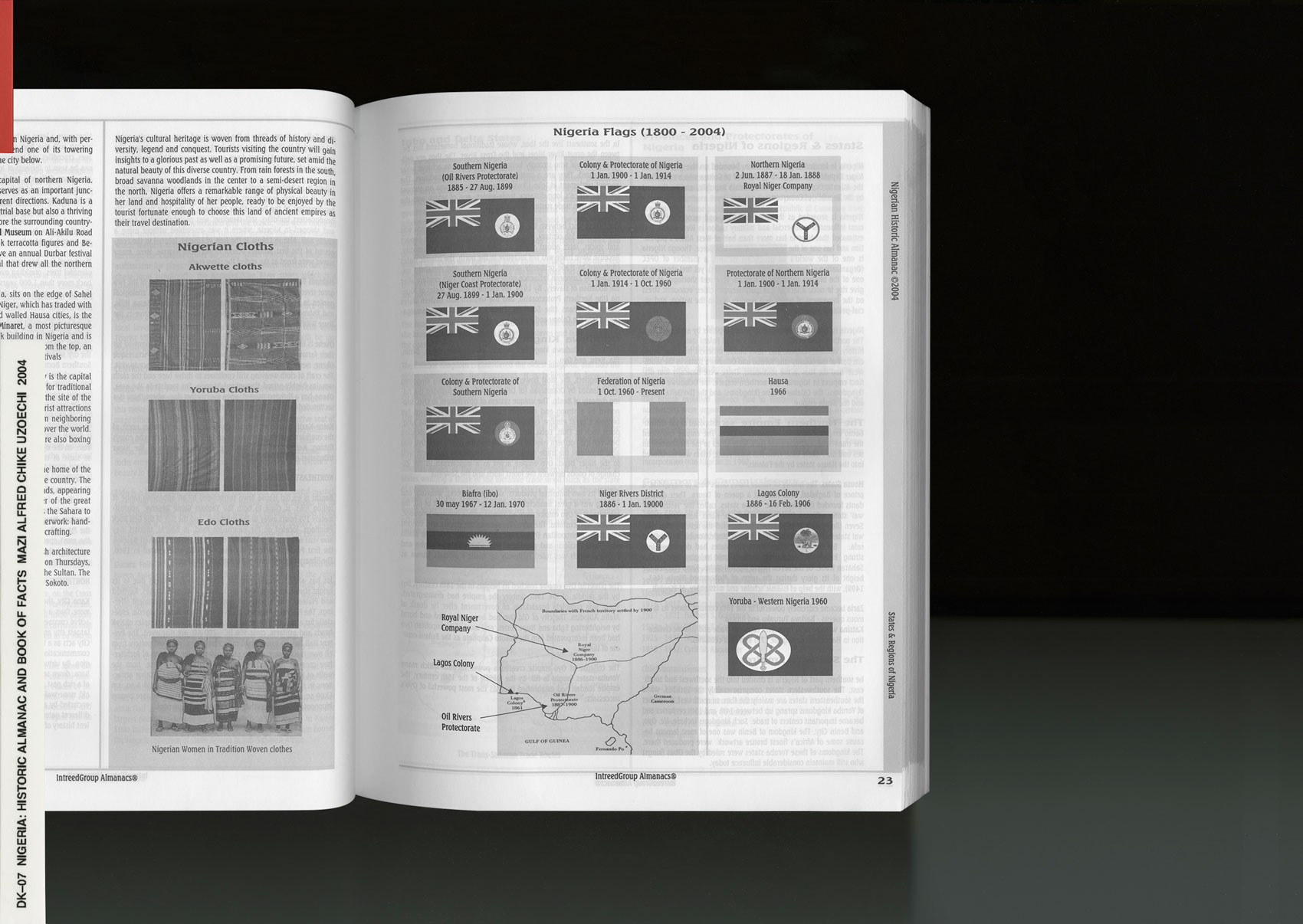
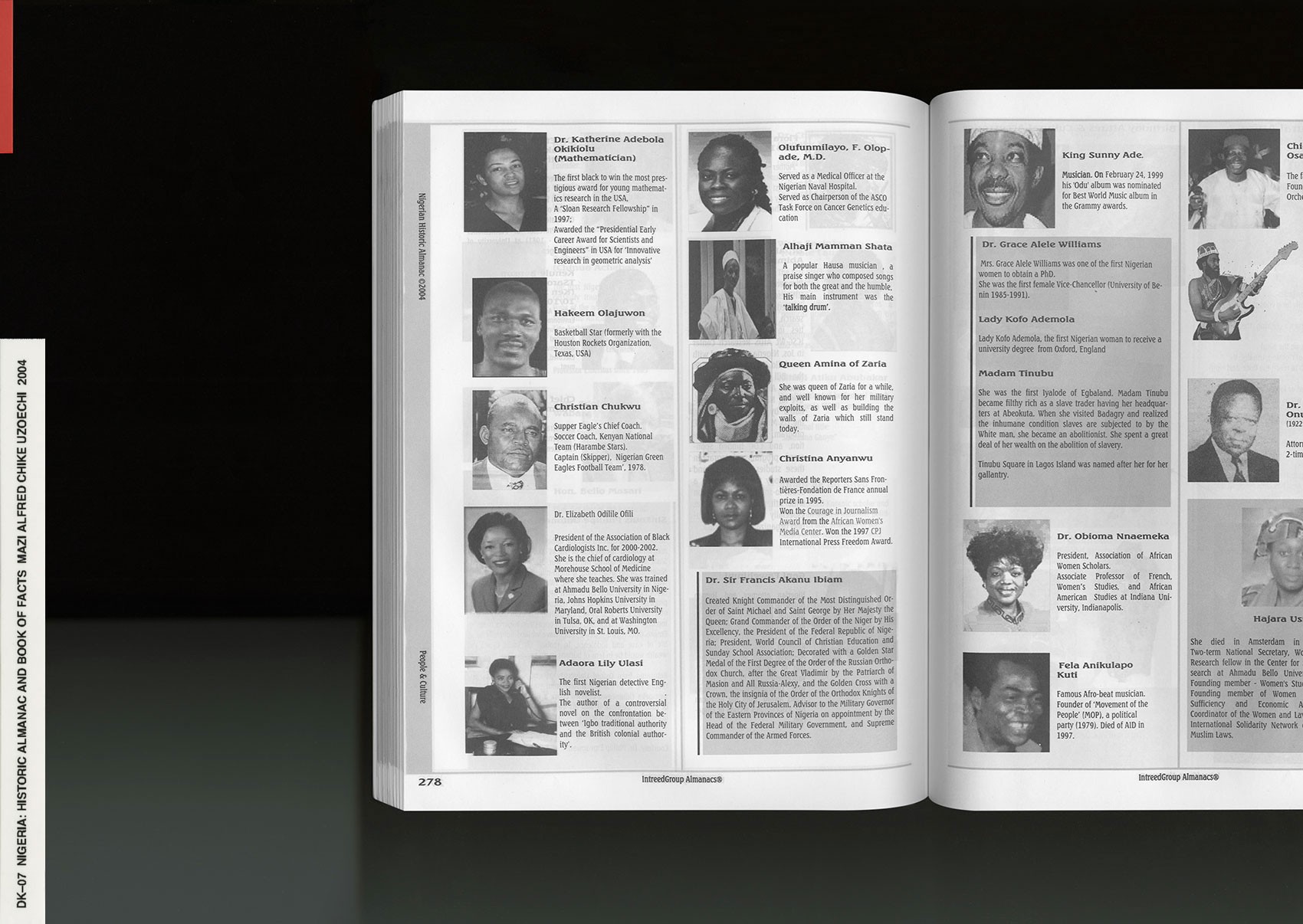
NR
How has your process developed through navigating this conversation between cultures?
DK
I think it’s helped me strengthen my ability to find comfort in discomfort. I recently traveled to Nigeria for the first time and that whole experience pushed me towards this kind of ruggedness that spilled over into some of the that are on view in my show at the Studio Museum. They’re part of the I finished after relocating my studio to this rural farming region of Portugal. Witnessing how most things are produced with this imperfect quality in Nigeria—usually by hand—I got fixed on becoming more hands-on as opposed to outsourcing the fabrication process. I like how that confronts the more minimal forms that I tend to lean towards.
But before seeing Nigeria I was more drawn to memories from my surroundings from childhood; the dirty south—. In the area where I grew up, that was the unique way people expressed themselves through material so I was playing with that sensibility. I’m still trying to find that mediating zone between cultures.
There was this graphic design studio based in Houston called . From the early 90’s to the early 2000’s I would credit them as being one of the major staples of visual culture for the south. I remember being in gas stations with my parents as a kid and seeing the they designed which I associate with the feeling of and and the . dominating the airwaves, but I could never fully indulge because that wasn’t part of our household. It’s funny though because that Pen & Pixel style of graphics is like everywhere in Nigeria to this day. Everything still looks like Microsoft . I compiled a bunch of my favorite covers into the first aid symbol and printed them on white shrink wrap for some pieces that were shown in London. Under the shrink wrap were these assemblages of car parts and West African masks and figures but you couldn’t really tell unless you got up close. I feel like that might be a good example of me trying to reconcile some of that tension but it’s been quite intuitive.
NR
When you first moved to New York for undergrad you studied filmmaking. What were the notable elements of cinema that you were drawn to? And does that still inform your current work at all?
DK
I was fixed on directing at first—mainly attracted by auteur theory—this idea that the director is in control of every aspect of the filmmaking process and their voice should be the one that cuts through. Those are the types of films that usually interest me.
But after my first semester my ambition started to fade when it became clear that it was mainly just the students that came from well-off families who were the ones that really had the resources to play around in that environment. I was trying to work through it but I have a fairly reclusive personality and I just couldn’t really see myself rallying together troops to get a zero budget student film made. I’m not built like that. So I tried my hand at other areas and naturally gravitated more towards production design as an alternative. I think maybe because technology wasn’t a big factor and also you still got to have some type of influence on what was in the frame. I had this professor who worked as a set designer for Wes Anderson and from taking her courses plus shadowing her on a few gigs, I kind of internalized that role.
By the final year I just kind of abandoned everything. I made a habit out of going to galleries and museums in the afternoons when they were empty and it sort of became my refuge—as corny as that might sound. I wasn’t interested in the films that students were making and also low budget stuff is usually not fun to work on when the end result is usually subpar at best. But throughout that time when I was taking it seriously I was able to exercise this sensibility for pushing narratives using objects and space—which I guess informs what I’m doing now.
But I'm still interested in production design and directing. I have rough ideas and I’ve been writing short stories just to get them down. I see cinema as a more visceral way to create mental space and broaden public perception. I mean, art can be equally as visceral but it’s just a smaller pool in terms of audience. I really love carefully designed films—where every frame is like a well composed picture. I would love to see a film by Gregory Crewdson08 but he said he would never. goes crazy. I’m really interested in the frames—feeling frames—feeling the spaces. Those two elements working together to communicate something. I don't know—I’ll tread lightly. Not too many great examples of artists transitioning into the cinema space.
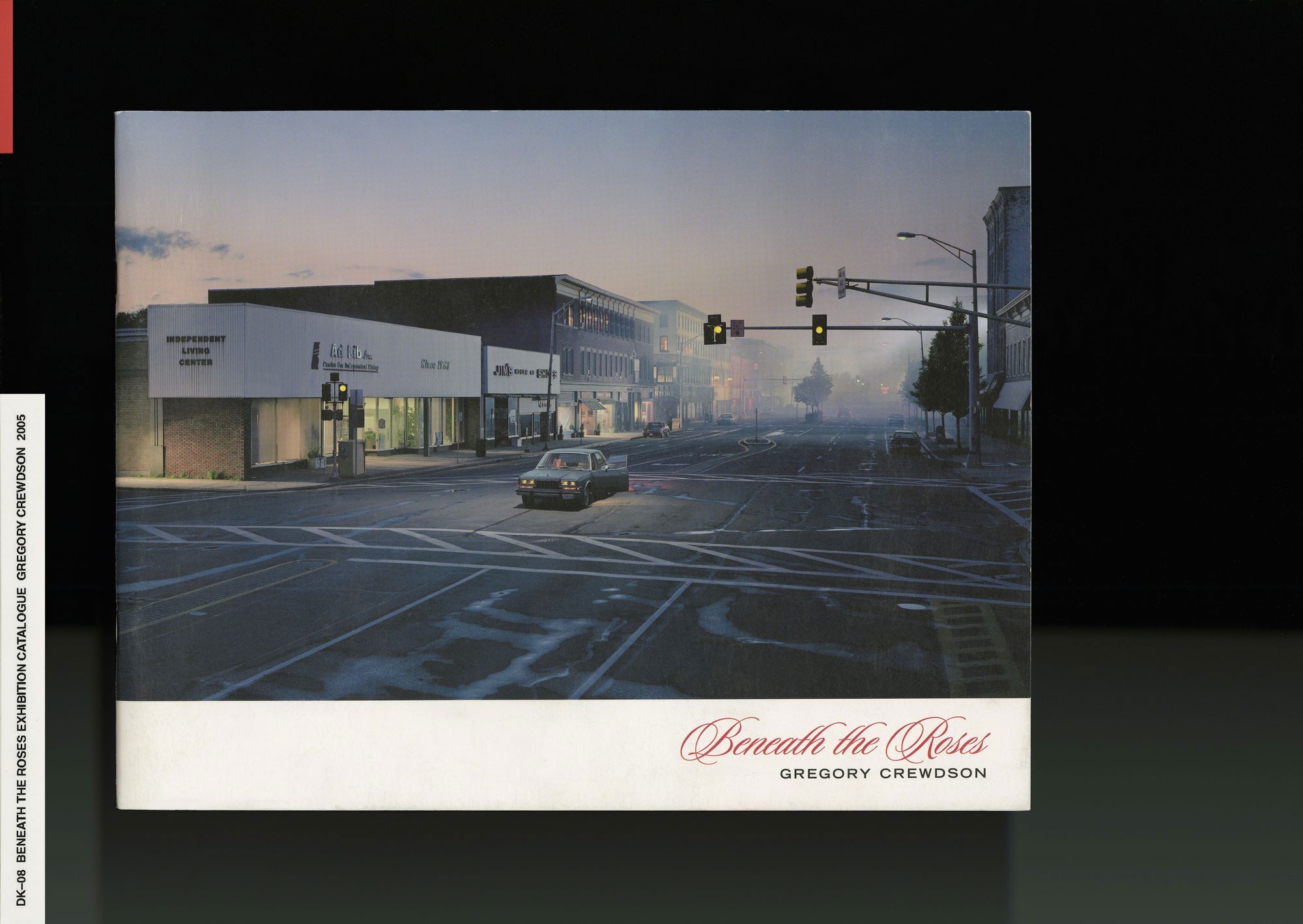
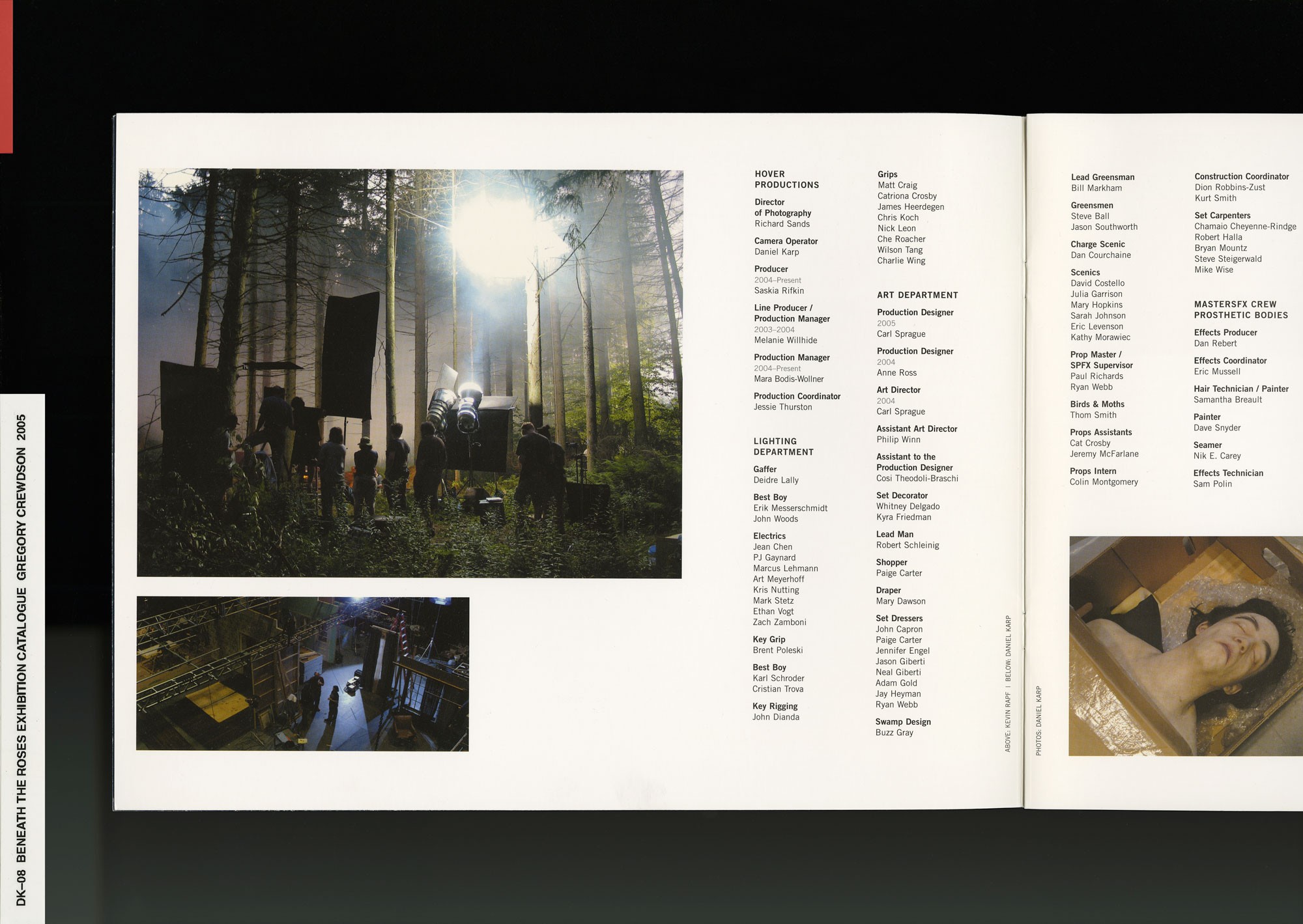
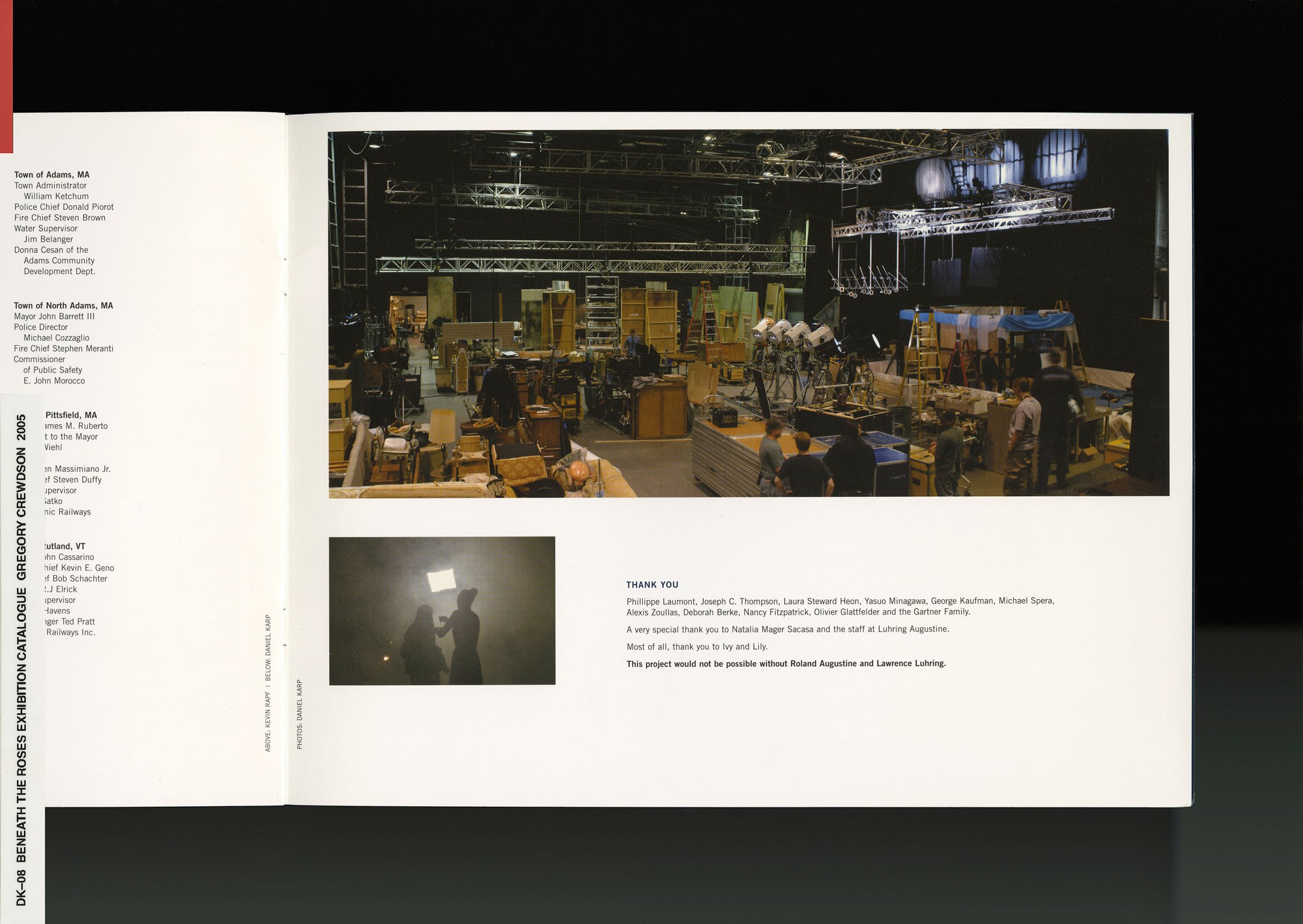
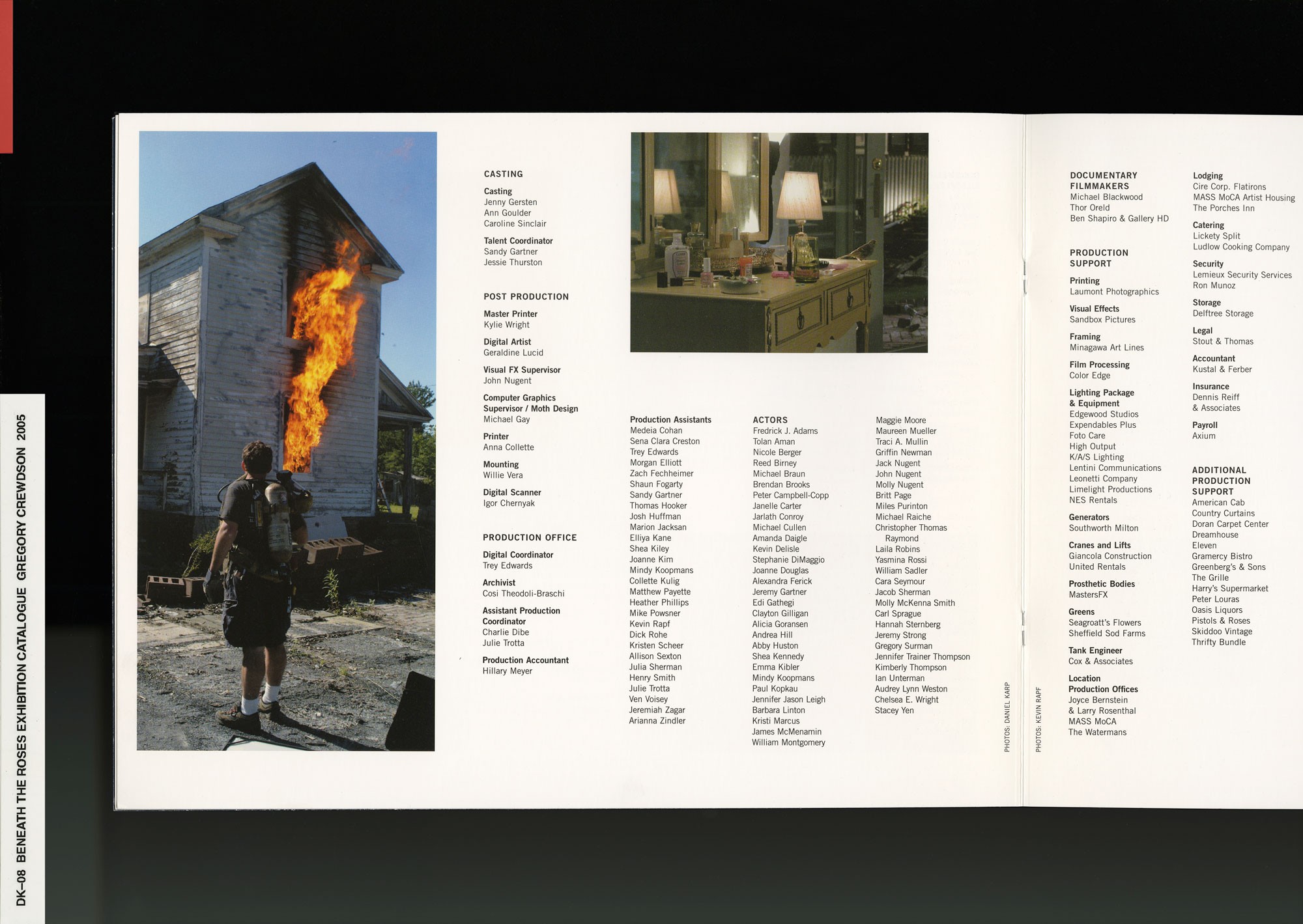
NR
So you spent some time making work in your apartment in Brooklyn after graduating, then back to your Mom’s garage in Houston. Eventually you settled in Portugal? How did all of that come about and how has that changed your process?
DK
It’s a very long story but I’ll cut it short and say it basically came down to finding this warehouse that was very low-cost. I was reading this one issue of Apartamento09 and they profiled some artists that converted industrial spaces into live-work spaces, so that’s where my head was at. I was also anxious to spend some time outside the States. There was this growing paranoia that I would squander this opportunity that I had to make a career out of something I really enjoyed doing so I wanted to get away to fully focus. I wasn’t trying to stress about paying rent or selling work in order to pay rent or none of that. After it was renovated, the warehouse became a place that accommodated the space I needed to work and serve as a decent living space.
In regards to process—work flow has definitely been affected by not having a community in Portugal. I don’t get to hang out with friends. I have to catch flights for that. It’s really just me and books and the internet. But that allows me to get lost in it. I can take deep dives into research without getting pulled out.
When I was living here in New York my bank account would always dry up. There was this pressure I always felt that I needed to be making something or doing something, otherwise I stay broke. I think I work better when my back’s against the wall like that. Even when I got a little bit of bread I would blow it on something like a coat or a trip to Tokyo just to get back to that “do or die” place. But I’m trying to be more responsible now and that urgency is kind of fading and it feels like I’m doing a lot of aimless research—research that doesn’t ever amount to anything. A lot of research and a lot of overthinking. I’m trying to train myself to just go ahead and make things that feel right and think about why after.
For example, I recently made this piece—it’s this that’s welded together with steel bars and pipes. Along the top there’s these raptor spikes—but the whole thing just kind of came into being without any deep thoughts—very impulsively. I was at my dining table. Usually I have a bunch of print outs and open books scattered everywhere. I saw the crib and then I saw the spikes—pulled out a light blue colored pencil—the next day I started making it—three weeks later I was looking at the finished piece and trying to answer questions about what it is. I showed it to a friend and their immediate reply was “is this for a bad baby?” It was in a sense prismatic. It had me thinking about parenting and innocence and masculinity and defeatism and .
NR
When you're at that table sifting through images do you have a particular feeling in mind that you want to impart on someone when they approach your work?
DK
I would like for my work10 to feel prismatic. I hope people feel multiple points of entry and carry a level of sensitivity. That’s all you can really ask for. There’s so many factors, outside of the actual work itself and usually outside of my control, that affect someone’s willingness to approach with openness so that they're not pushed into a singular reading.
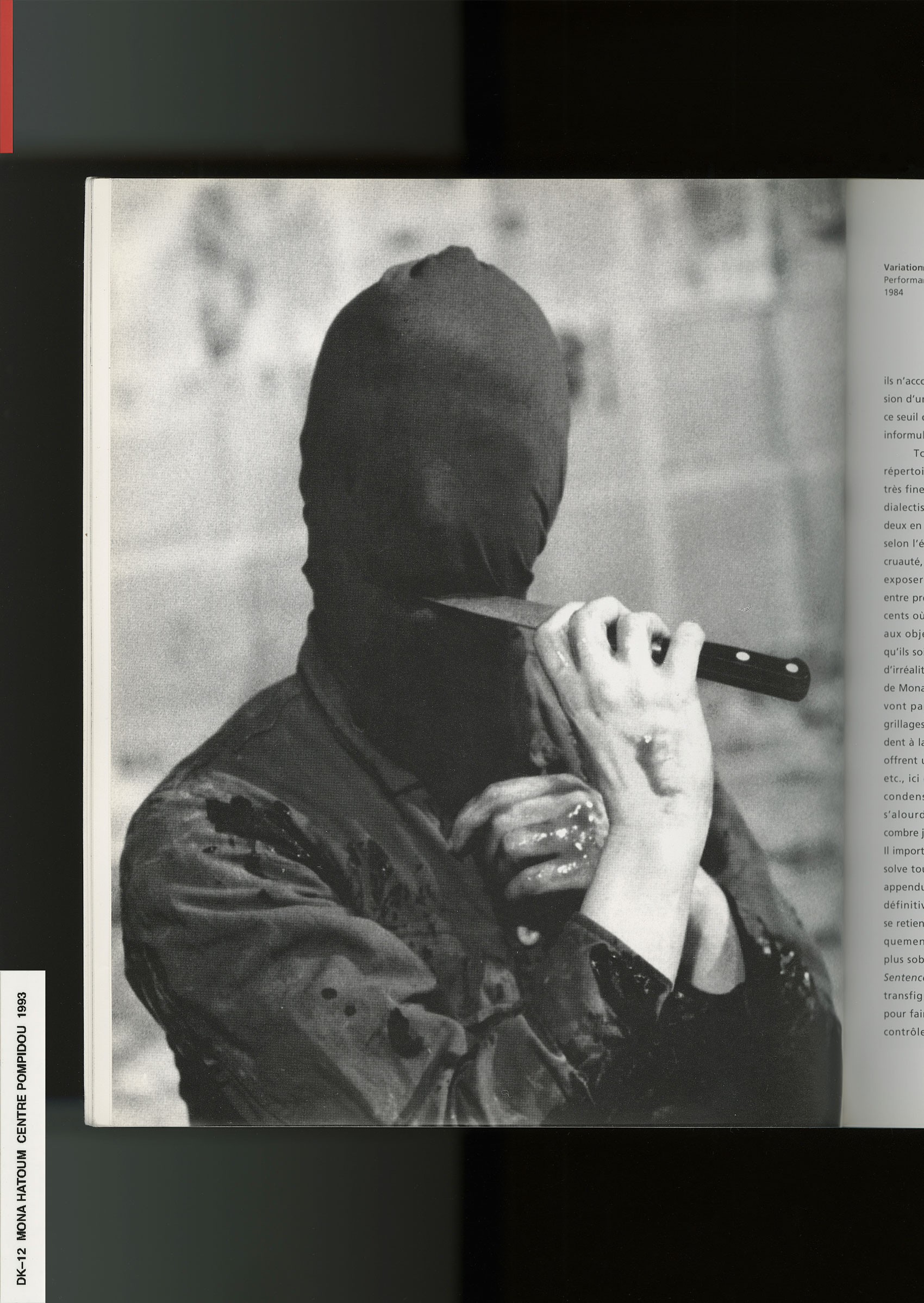
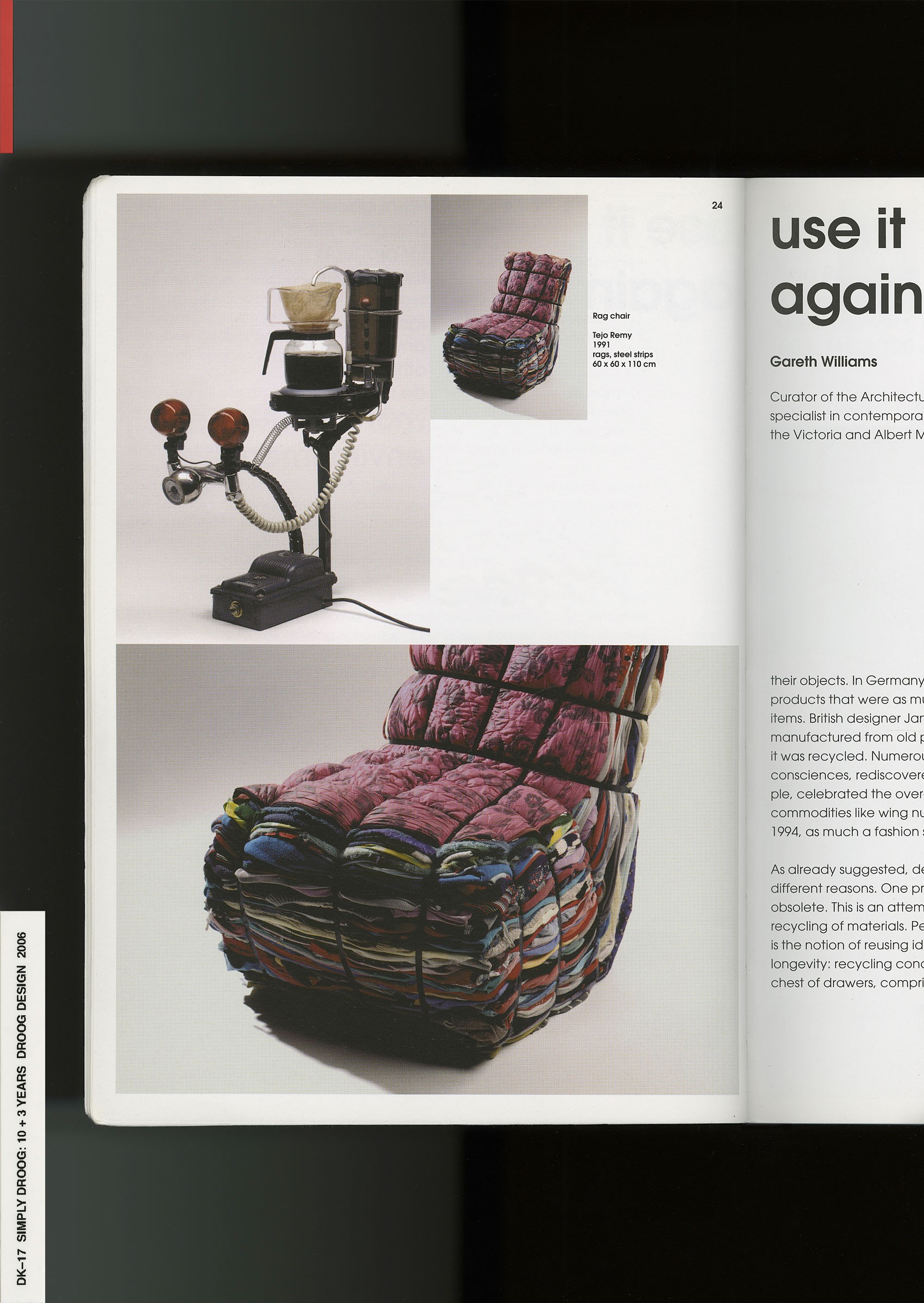
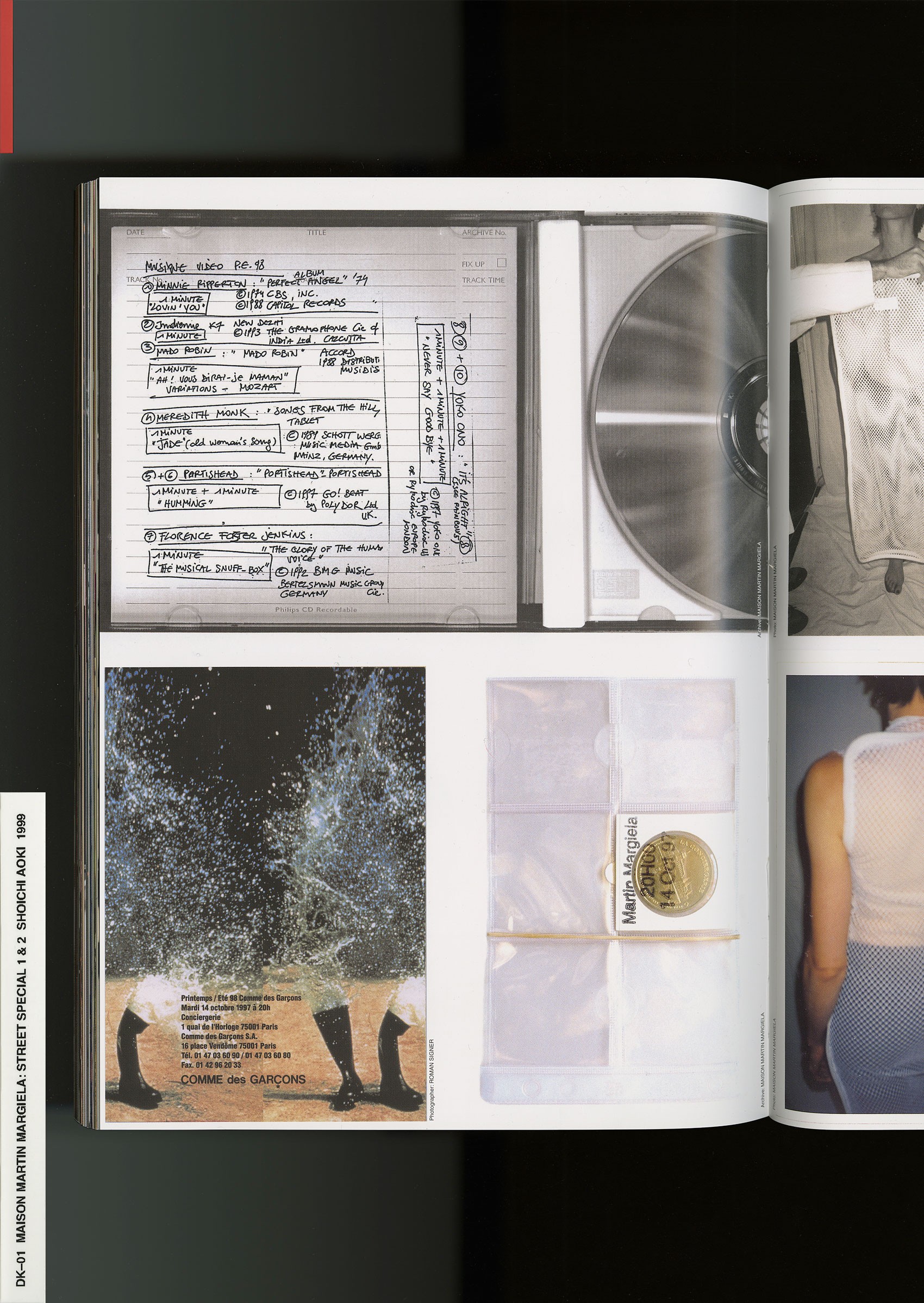
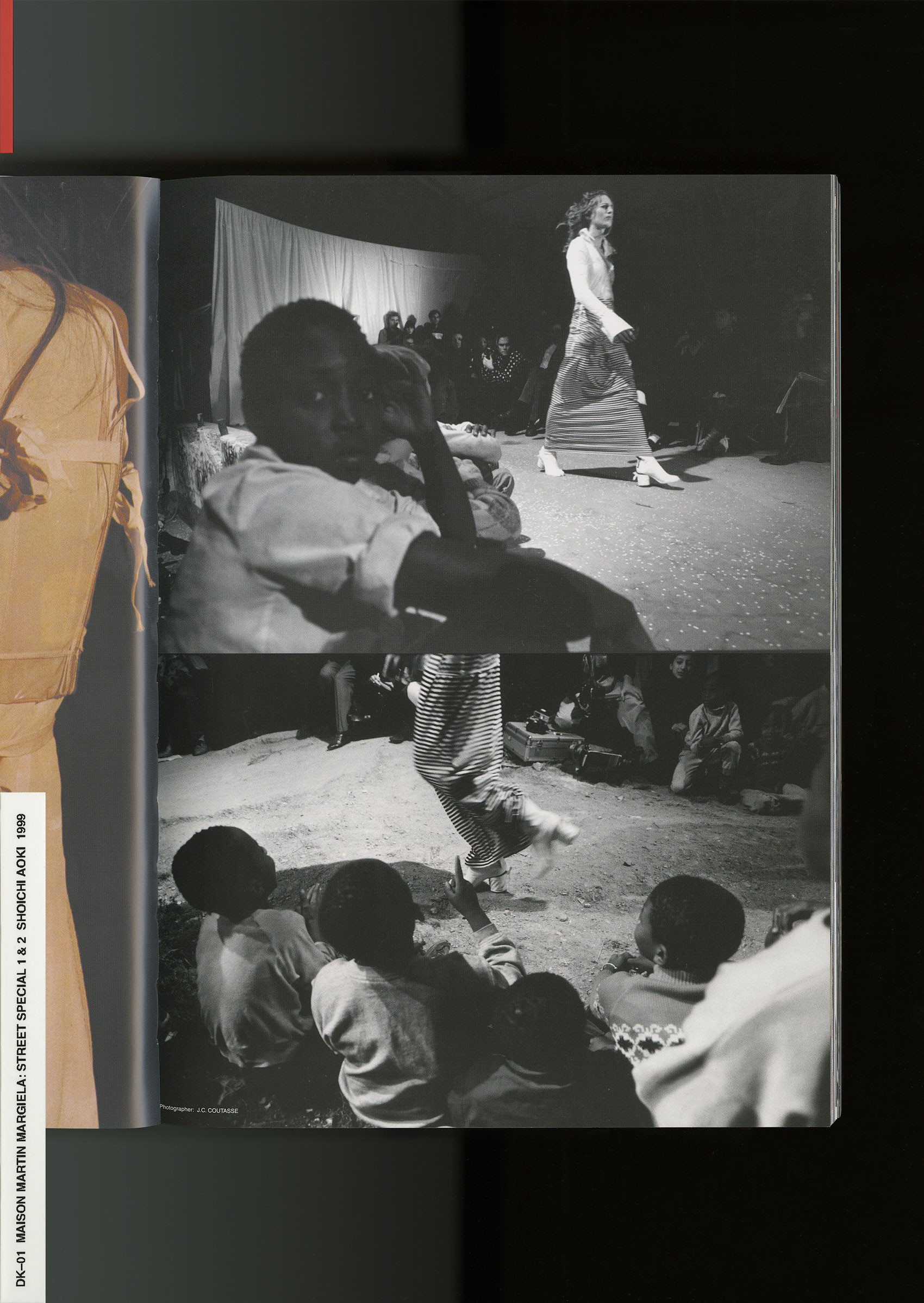
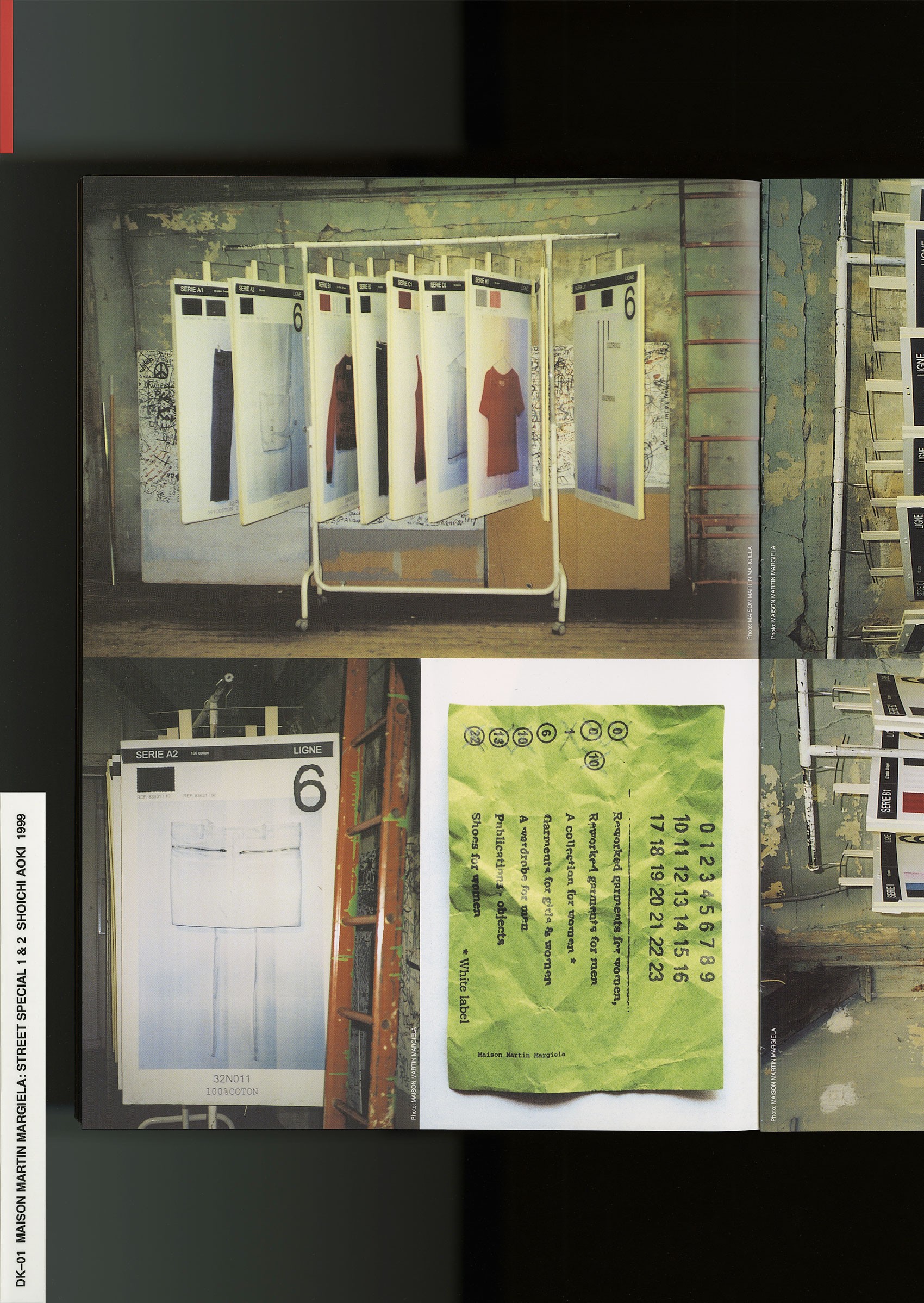
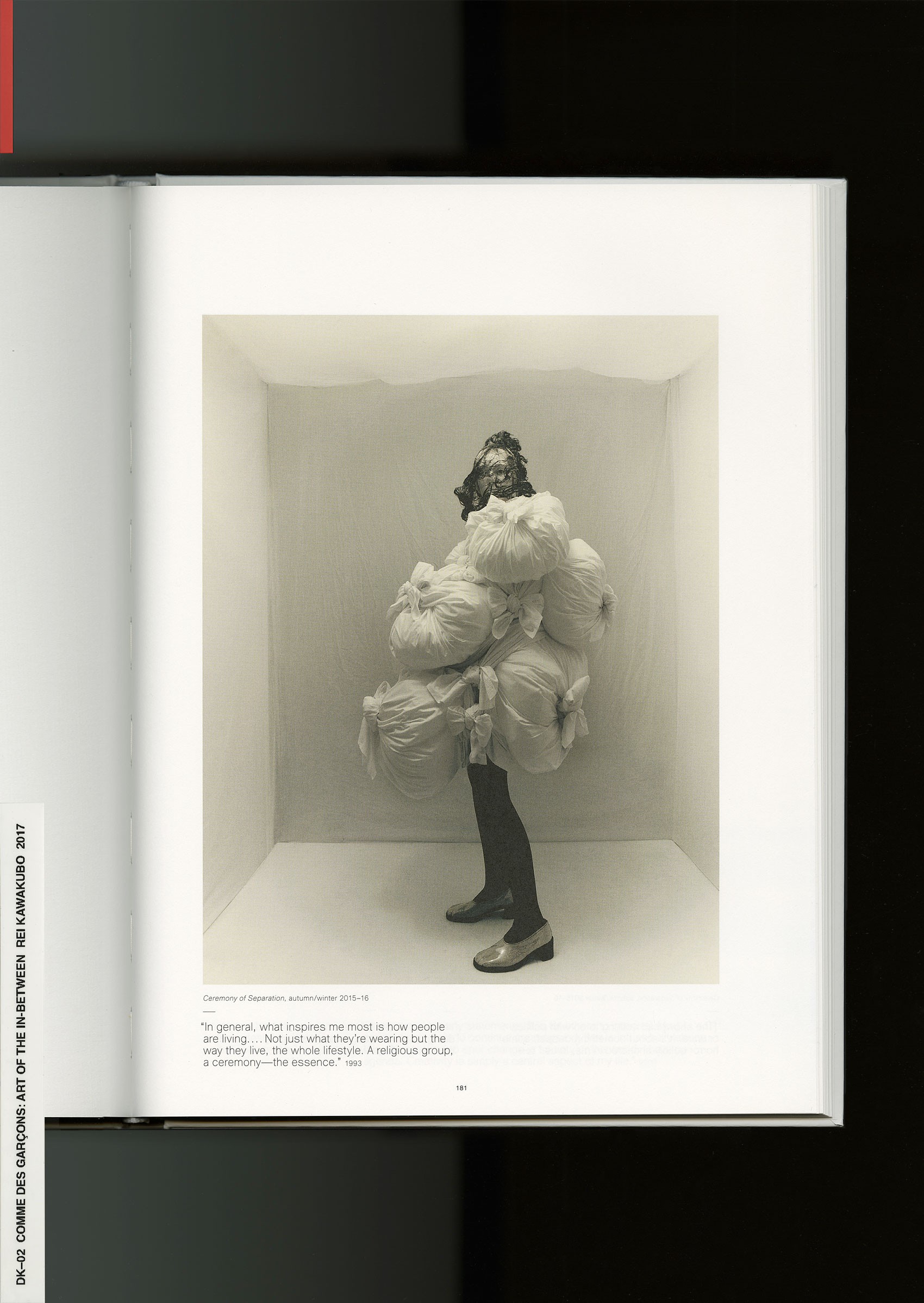
NR
This idea of a prism, does that exist in other artists that have informed you?
DK
Yeah, of course. David Hammons11, Mona Hatoum12, Marc Camille Chaimowicz13, Noguchi14, Joseph Kosuth15. The list goes on. But also Martin Margiela or Enzo Mari16 had this way of making pieces that come out of a deeply critical perspective—which I think is more difficult to achieve in their more overtly commercial industries.
NR
Do you find that feeling existing in other forms of creativity? Like architecture, music—
DK
The Droog Design17 group... Le Courbusier18 architecture... Charlie Kaufman19 screenplays. It exists in so much music. I could go on for days. With music it’s a bit more obvious when something deserves to be trivialized. But I think Frank Ocean20 occupies an interesting in popular music right now. Like he’s filling a void or something. Music industry is so intensely saturated right now. But lately I’ve been leaning toward more and more music that doesn’t have lyrics. It gives me space to think. Right now I like and a lot. also.
NR
What books do you wish you had been exposed to earlier, knowing what you know now?
DK
Fred Moten. In The Break21.
Pretentiousness: Why it Matters22 by Dan Fox—a relevant essay in my opinion that could’ve eased some anxiety early on. It’s fairly new I believe.
Americanah23 by Chimamanda Ngozi Adichie. A great book recommended to me by RoseLee Goldberg.
Tell Them I Said No24—this collection of essays by Martin Herbert—would’ve been super helpful if I had read this when it initially came out.
Seth Price wrote a book titled Fuck Seth Price25. It’s a quirky narrative story about the contemporary art landscape and some of the ways to navigate.
A Billion Black Anthropocenes or None26 by Kathryn Yusoff. She frames anti-Blackness within geological structures. I’m still trying to wrap my head around it. I have to read it again but I feel like I’d be better off if I had been studying these ideas 5-10 years ago.
I don’t have a formal education in art or art history or theory so I’ve been kind of learning just through experience. But I recently read Inside the White Cube27 by Brian O’Doherty which I found very informative. It gives a lot of language to things I was already feeling.
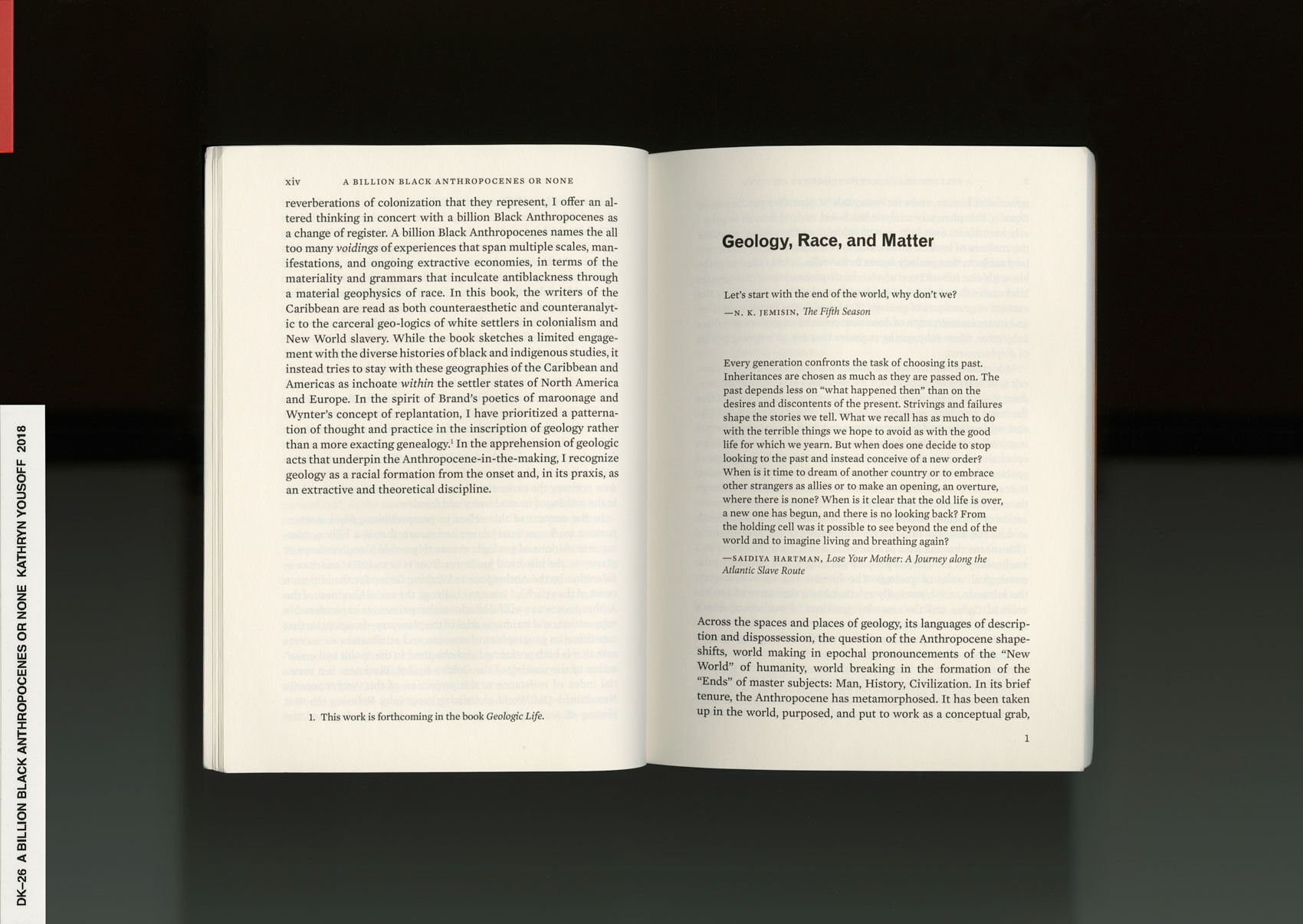
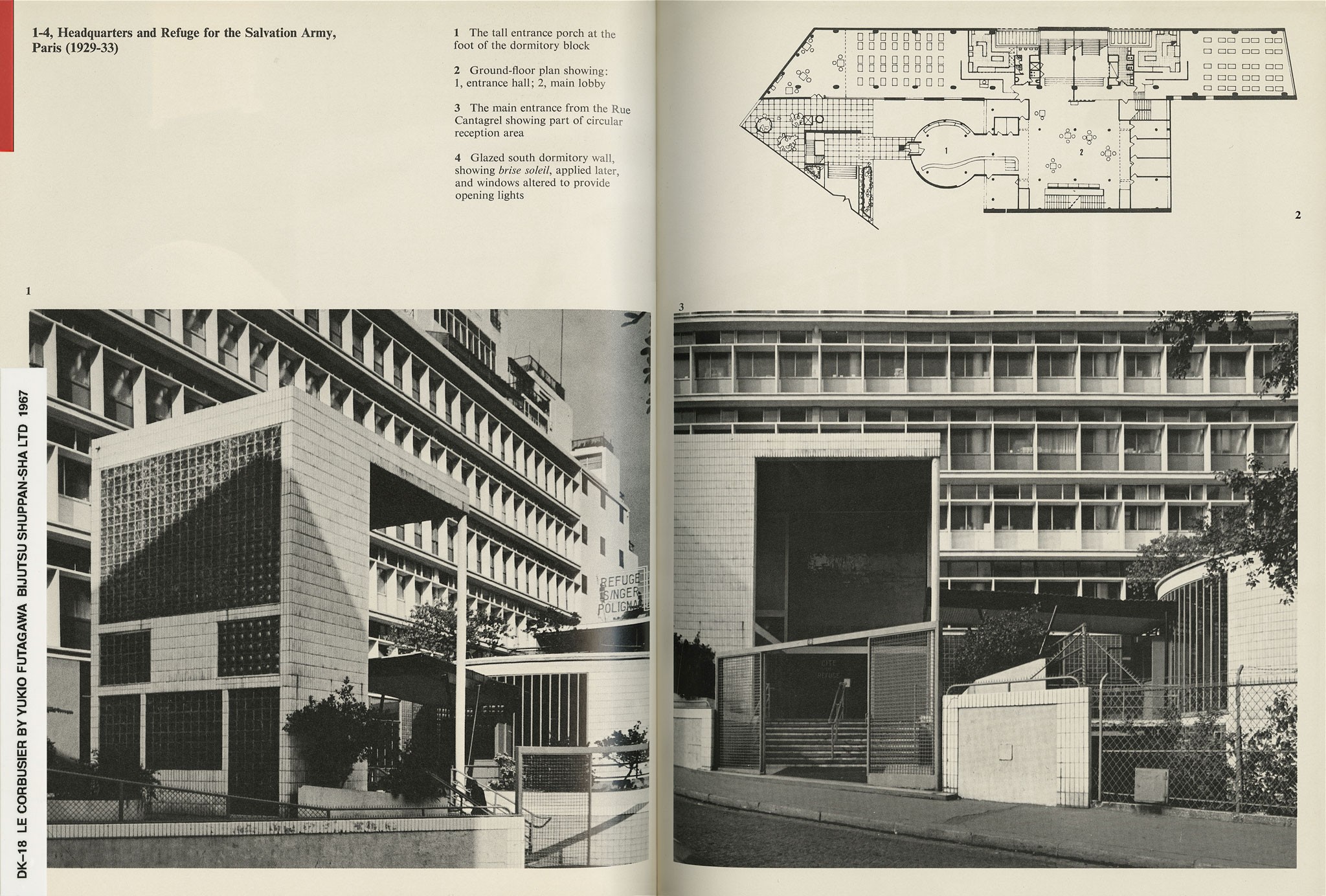
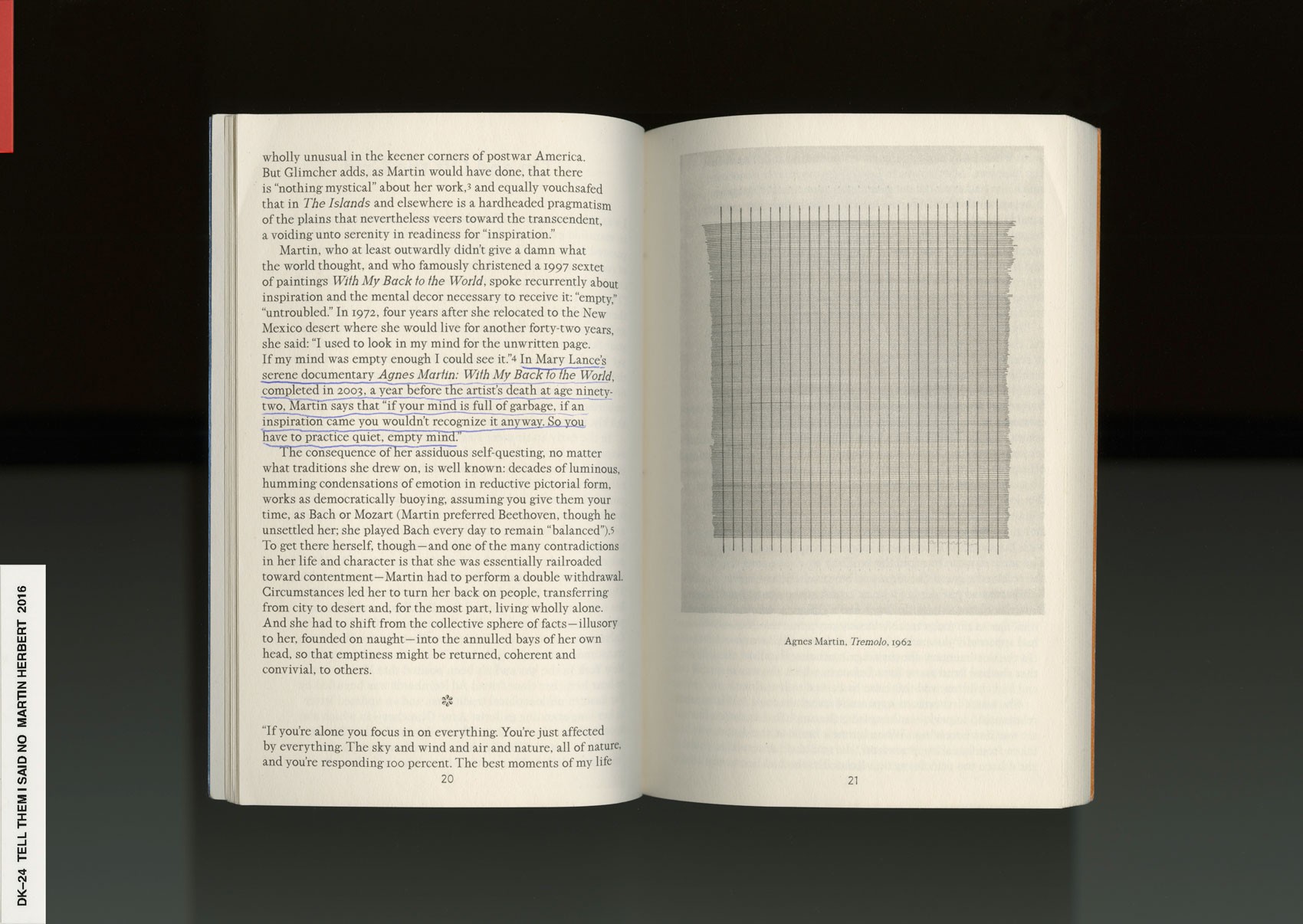
NR
What obsessions would be revealed by your library?
DK
I wouldn’t call it an obsession but I really appreciate a well-done magazine. My favorites right now are , and .
NR
Throughout your body of work, the found object seems to be a reoccurring subject. What's your intention employing this device?
DK
It has something to do with resources and using whatever’s available. A lot can be articulated using what we already have at our disposal. The objects I use are usually loaded with memories or reference themes that are relevant to my outlook at that particular point in time. It’s common in Nigeria to re-use discarded things. Things get recycled differently. I found this wooden trunk in Lagos and took off the aluminum sheets that were riveted on then re-riveted them onto this chair I found in Portugal which is included in the Studio Museum show.
But in relation to that, I think using found or readymade material could be seen as a response to other artists employing the readymade as their medium––repurposing found material as opposed to de-purposing once they enter the gallery. And I know that’s a narrow perception of purpose when speaking about art but I think it’s where my intentions are growing from—this already very black and white understanding of utility pushed into a more expansive understanding.
I remember watching this interview that Richard Serra28 had with Charlie Rose a while back. was criticizing because Gehry was getting recognized for being this world class artist and Serra was kind of pissed off saying things like, "Art is purposely useless. As soon as you give art utility, it's no longer art. Why are people validating him as an artist? I’ve never been interested in plumbing.” That interview has stuck with me—just making me aware of the hierarchies and the ways in which categories and modes of creation can be used to marginalize a work's affective potential. It’s difficult to overcome but I kind of like that.
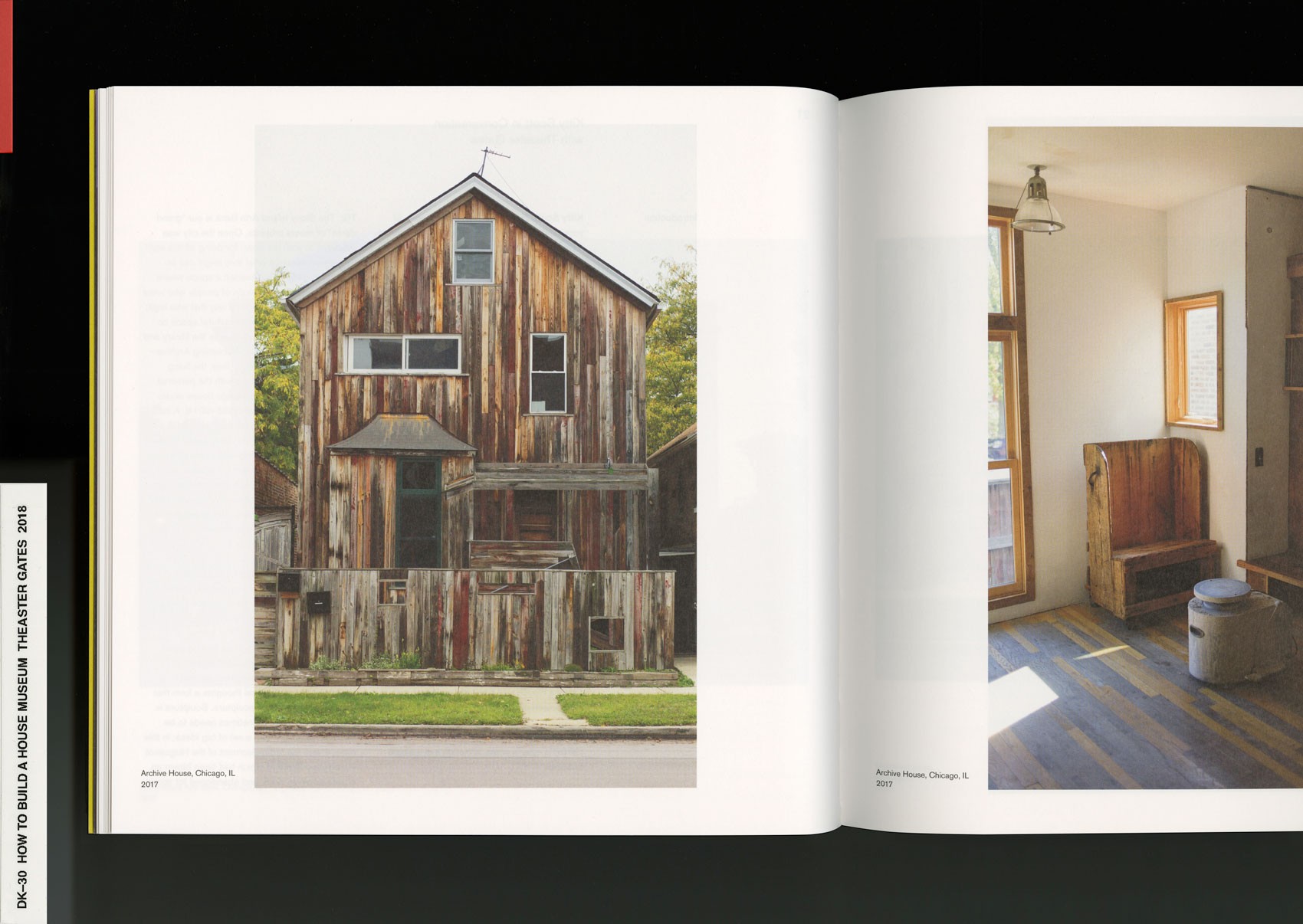
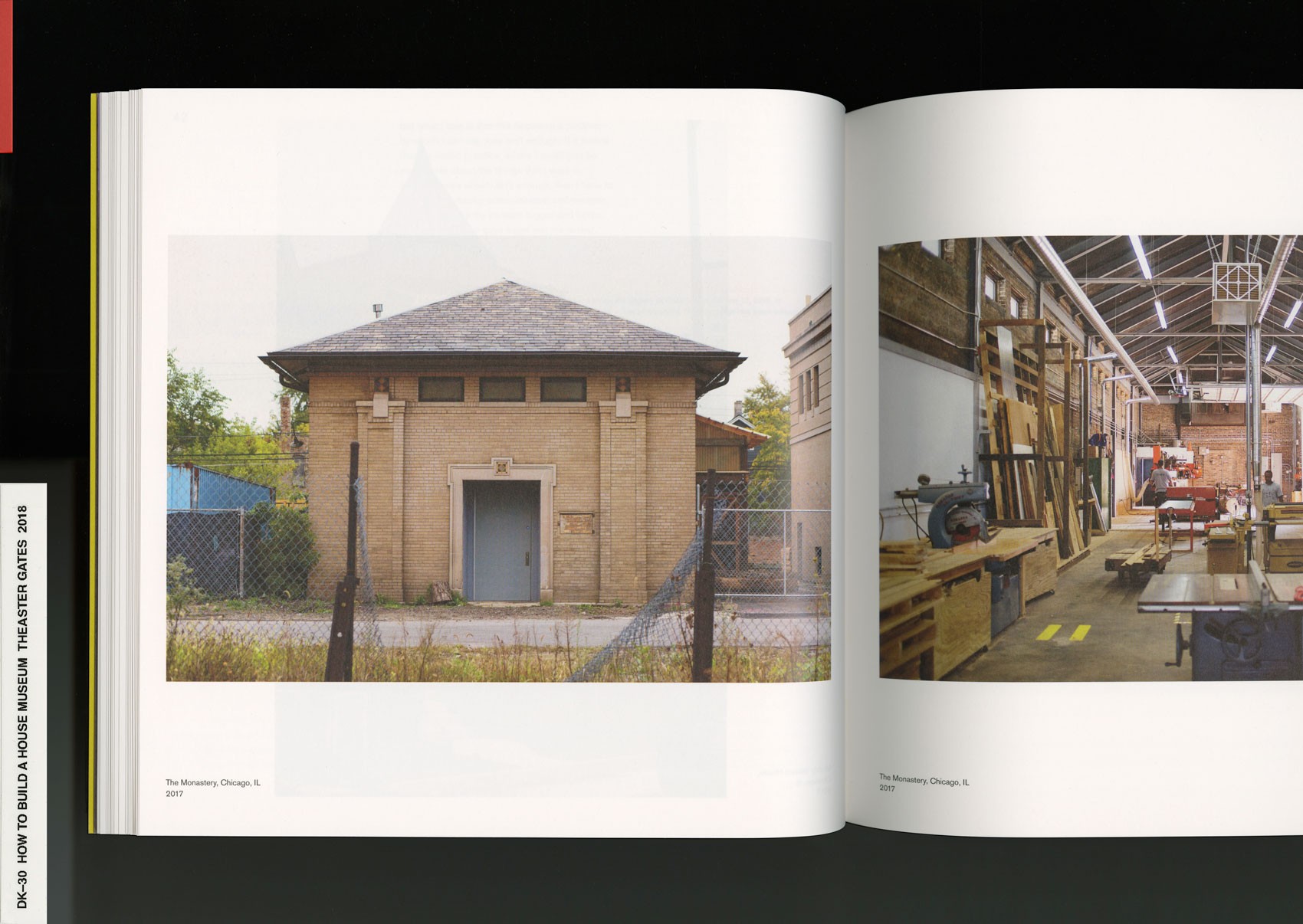
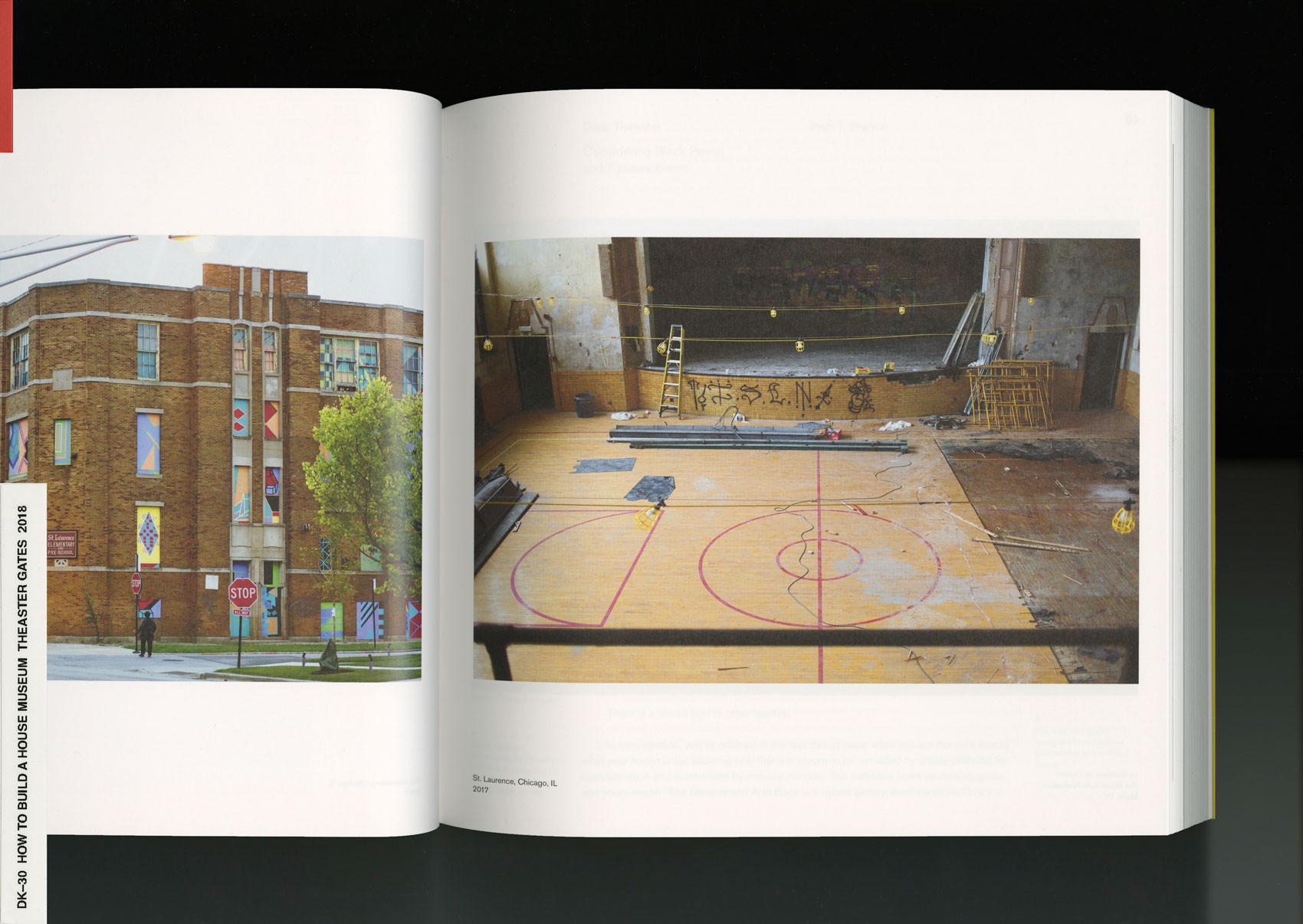
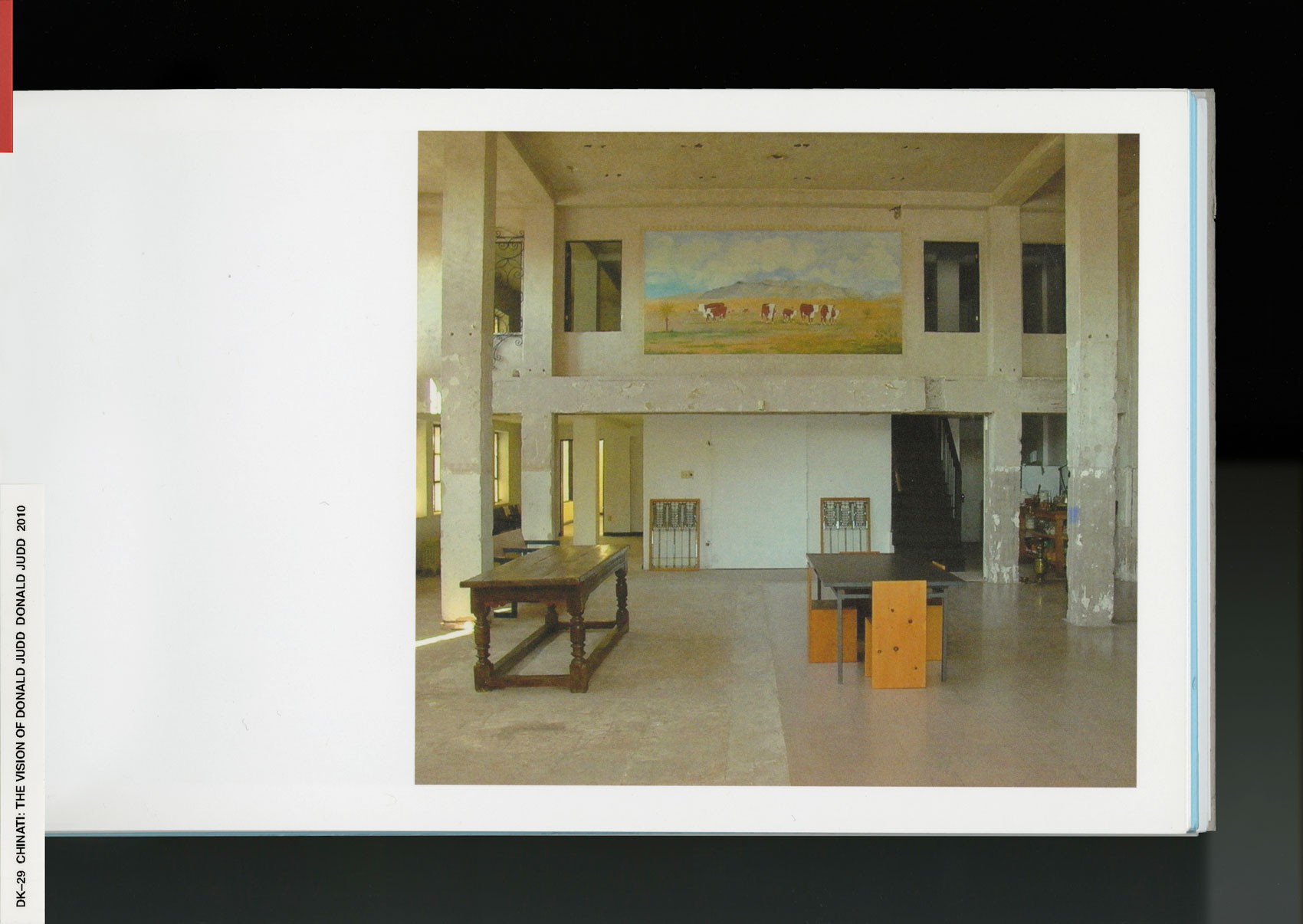
NR
When you're talking about art and the word ‘function’ it surfaces how the act of making the object is a substantial quality of the work—the performative aspect is a function of the sculpture as much as the form. The story of the prop is the movie.
You mentioned one day you want to build a city?
DK
That sounds a bit overly ambitious. I think community is a better word. Something similar to what Judd29 did in Marfa with or what Theaster Gates30 has with the .
Working with architects and doing like 10 blocks of buildings would be cool. Art centers and cafes and theaters and housing—not anytime soon obviously but I would enjoy working through that process. Curious about how my approach to making might translate into architectural spaces. I don’t know much about urban planning but it’s extremely necessary to rebuild I think—in relation to Black progressive towns that were burned down in the early part of the 20th Century. The work I'm doing now could very well just become debris in comparison to being able to complete an architecture project or directing a feature. I’m grateful to be gaining a tiny bit of traction but I’m definitely thinking more expansively.
NR
Artists today, and the idea of celebrity—it’s almost like, the art of gaining recognition. How do you feel about celebrity culture and do you think it’s possible to fuse integrity at the center of the idea of celebrity?
DK
That’s a very loaded question. You’re talking about making it the standard? I want to say yes it’s possible but that’s difficult to imagine. Well actually, integrity is subjective, so that would mean establishing a general consensus around what that word really entails... On second thought, people will never not sell-out. That’s going to be a thing until the end of time. Someone’s offering you a bunch of money to change your opinion and most people will take the money. It’s very rare for people to be willing to persistently sacrifice their livelihoods over their beliefs.
I used to romanticize about the 80’s era but I grew out of that. I recently saw a of Fela Kuti and Basquiat and Grace Jones all hanging out and thought that was the move. Recognition is cool but it’s better when it happens organically. I don’t want to limit my potential but I’m also not trying to forcefully insert myself into celebrity culture. I just want to make a living off making things I can be proud of at the end of the day—doing things that feel right.
